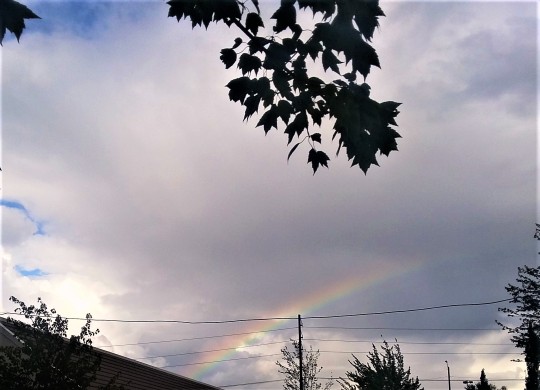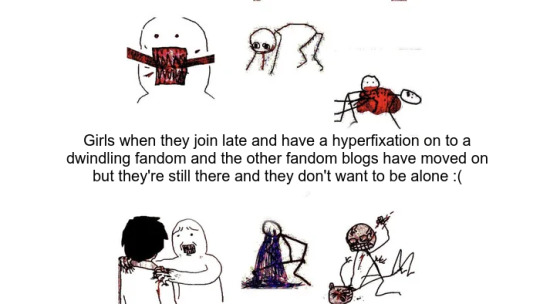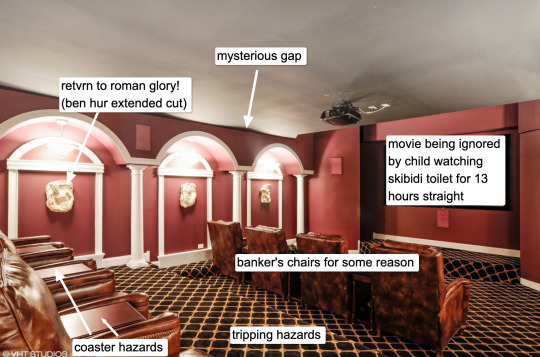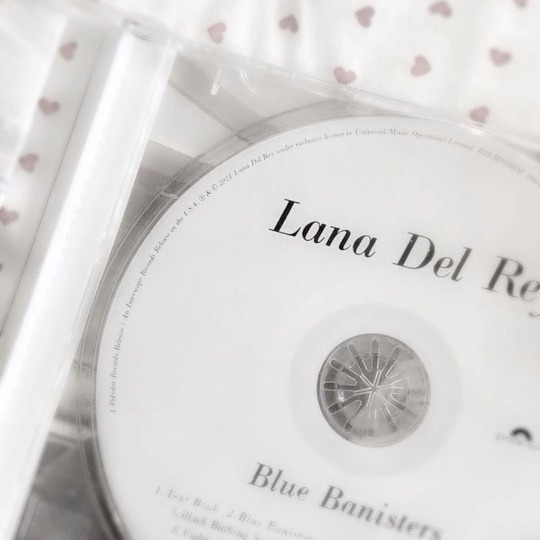#but the thing I made this post about is like. I COMPLETELY understand why people flocked to this. it just DOES NOT WORK FOR ME
Note
Free Pass Ask to talk about In Depth Luxu Analysis in case of no one sending in the right question to go off with
ok! here's my ~1600 word post about That One Scene At The End Of Dark Road. grins smilingly.

You know the one. Right after we see Baldr easily kill most of the cast of the game, right after a boss fight against him, right after we witness firsthand how powerful he is, we see a flashback of him confronting Bragi with the intention of killing him. And Bragi just...casually flicks his keyblade out of his hand. Bragi fully knows what Baldr's actual deal is, knows that Baldr has killed people, and is completely unthreatened by him. For good reason, it would seem!
So, Luxu's a badass, obviously. He made the big villain of the game into a jobber. And I think that's certainly one of the purposes of the scene. Luxu is about to be one of the primary antagonists of the franchise, and this sets him up to be very powerful!
...But I don't think it's the purpose of the scene. That is, I don't think that's the entire story. Because there are a couple questions left by this scene.
What happens at the end, there, when Baldr runs up to him and attacks him? And why doesn't Bragi reappear until long after Baldr is already dead?
I think we can piece together at least part of an answer.

In the earlier montage where Baldr says he killed everyone, we see a brief scene of Baldr slamming Bragi down onto an island in the Underworld. I assumed that this was a visual representation of Baldr lying and claiming he had killed Bragi when he didn't. But Bragi is the only character in this montage who we don't see die on screen. I believe we're meant to understand that this scene actually happened, and that this is what immediately follows the Luxu reveal cutscene.
Which seems contradictory with Bragi being such a badass, right? Was Bragi disarming Baldr a fluke? The thing is, when Baldr attacks Bragi at the end of the cutscene, Bragi is completely off guard and unprepared for the attack. We already know that Luxu can misjudge people/situations, to his own downfall.

Consider in Dream Drop when he seems to fully believe Sora will join the Real Organization XIII, or Days when he's unthreatened by Xion right up until she knocks him out and leaves, or Re:Mind when he finds out Luxord decided not to simply obey orders without question this time. So him being defeated by Baldr doesn't necessarily mean Luxu is weak if Bragi was defeated due to hubris.
(As a side note—I do think that this would be part of the reason the cutscene cuts off when it does. Luxu still needs to be a threatening villain in the upcoming games, so the audience has to have a strong impression of how threatening he is. We get the full cutscene of Luxu being cool and powerful, and only little glimpses of the fate he meets directly afterwards.)
I think what happened is Bragi sauntered off all cocky and smug, not believing Baldr would attack him. Then Baldr attacked him, and Bragi, realizing what a threat Baldr actually was, pulled a trick we've already seen Luxu pull before. (Seemingly so well that Hades himself is fooled.)

Baldr believed he killed Bragi and saw no reason to be like, "yeah, and also Bragi said some weird mysterious stuff I didn't understand, but the point is that he's dead, too."
Now for the question of why Bragi didn't reappear until long after everybody else was dead. If he's such a badass, surely he could have helped stop Baldr and saved lives. Why didn't he?
From here, I can really only speculate. In my view, there are a few options:
Luxu didn't care about his classmates and left them to die as soon as he realized what a threat Baldr was.
This is...possible, but not very interesting to me. It's the option that results in the least emotional complexity. I think it's most interesting to read Bragi in Dark Road as the second-to-last step on Luxu's downward spiral, rather than just another point on a straight line—that his personality as we see him in the current-day games is informed by the trauma of him losing all of his friends to an opponent he could have stopped but didn't.
Also, maybe this isn't very convincing as evidence, but in his appearance in the graveyard, Bragi's attitude isn't smug or mischievous, it's somber, possibly remorseful. If we were meant to understand that he didn't care about his dead classmates, we'd get, like, a smug grin or something.

So the other options assume that he did care about his classmates:
Luxu sincerely cared about his classmates, and wanted to help them, but was injured so badly in his fight with Baldr that he was physically unable to come to their rescue.
Like I said, I think this is more probable and more compelling than if he didn't care at all. And there's potential tragedy in him trying his best and still failing, or having the best intentions and being unable to follow through on them, for sure. However, in general, I'm more interested in characters failing because of the mistakes they make and the flaws they have, rather than failing due to chance or unavoidable circumstance.
Also...we already know Luxu is the kind of person to stand by and allow terrible things to happen without doing anything to stop it. We know he has been specifically instructed to do so. I think it's more interesting and more consistent with his character if he could have saved his classmates and stopped Baldr, but didn't.
This last option, then, is my favorite, and in my own writing would be the interpretation I go with:
Luxu sincerely cared about his classmates and had the power and strength to protect them from Baldr but, through his own decisions or inaction, still let them die.
Luxu's classmates were all children or barely adults, younger than him by perhaps centuries. But he hung out with them. Actively participated in conversation with them, asked them questions, joked around with them. He seemed to like them. They were his friends. And he let them die.
There's variety in the potential specifics. Maybe Bragi fled and hid until everything was over just to save himself. Maybe he grit his teeth and made the conscious decision to do so; maybe he was motivated by pure animal fear for his life. In either case, he still had a role to carry out, after all. A role that, as I mentioned, has already required him to stand by and allow people to die. If he could swallow the keyblade war, he could swallow the events of Dark Road.
Maybe he believed he had an excuse to run away. In his confrontation with Baldr, Bragi says Xehanort is onto Baldr, and seems to believe Xehanort would be able to stop him. This is before Baldr attacks and seemingly defeats Bragi, but maybe even after that, Bragi still really believed in Xehanort, and believed he could let Xehanort do the rest—misjudging Xehanort's ability to stop Baldr before any more death could occur.

If you wanna get really angsty with it, maybe Bragi did try to save his friends. Maybe he rushed to the scene of Baldr's next murder and saw children with keyblades fighting for their lives, heard the clash of metal on metal, and was suddenly immobilized by the voice of his Master telling him to watch. And by the time he was able to overcome this trauma response, it was already too late.
Whatever the specifics would be of why he left his friends to die, I'm aware that this is the option that casts him in the worst light. If he didn't help them because he didn't care about them, then he's just a coldhearted villain and we can't expect much better from him. If he cared about his classmates and tried his best to help them but failed, then he's a sweet goodboy and uncomplicatedly sympathetic. If he, for any reason, decided not to try to save his friends from a powerful entity that has killed and will kill again, then he's pathetic, morally repugnant, a weakling or a fool or a coward or a combination of the three.
But I like when characters are flawed and stories are messy! I like that, even before you get to the events of Dark Road, Luxu is a messy, complicated, but still sympathetic character! Many of my other favorite Kingdom Hearts characters are messy and complicated in ways that I feel get frustratingly flattened by the fandom. I'm Team Messy and Complicated forever. I hope the games keep making Luxu even worse and more sympathetic and more tragic.
anyway thats my post i hope you liked it haha whee! i once again had to keep deleting detours and tangents about like. redemption arc flags, riku/terra/luxu parallels, luxu/MoM and luxu/xehanort parallels. but the were just that, tangents, and quite a lot of them were more headcanony/watsonian/speculative than i usually like to go with my Analysis. in any case thankyou for coming with me on this journey
#whee! yippie hahah aahhahaa haha ahhaahahaha! ahah!!! hahahahaha wheee !!!!!!! thgrowing up#i dont like. read KH metaposts very often [ive my own reasons. all of them annoying and pretentious]#so its possible that someone else has already done this analysis#or even that there's stuff i missed! details i didnt consider#but. whagever. the luxu scholar has logged the fuck on#if you have thoughts id be happy to hear them but please be niceys to me#kh#xigbar scholarship tag#blakeposts#asks
20 notes
·
View notes
Text
who up seeing their disorder in a fictional character but feel like its not their place to put a name on it
#id have to be waterboarded before i can talk abt how i see a lot of my adhd and personality in mitsumi iwakura let alone post it#idk how to talk abt this without feeling like im talking over or invalidating ppls experiences relating with a character#someone was talking abt how ppl tie laios' autism to special interest and social difficulties but not much else which kinda flattens it#and then went into a respectful in depth analysis of other autistic behaviour that laios exhibits and it wasnt phrased meanly#its fascinating and important to me to hear someone explain a little bit abt traits that they recognized and often go overlooked#because it does help me learn more about it. but i think thats also where hesitancy kicks in when it comes to depicting it accurately#like i have adhd and some of my adhd symptoms overlap with autism (time blindness and pattern seeking behaviour) but that only means#it feels familiar to me even without having autism. on top of that traits arent always cleanly determined as being /caused/ by#a disorder. to understand my environment i compare it to something unrelated but similar to make it more familiar and for the longest time#i thought that was a personality thing and not an information processing thing since i loved playing pretend in my head as a kid#so if you make a character who experiences that hoping to reach people that also experience that and tell them its not weird or#smth youre making up like. thats the goal. ppl who dont get it arent expected to it just means it doesnt cater to them but it helps them#become familiar to it yk? since i dont have autism myself i dont feel confident i can depict it properly or explain it in my own words#but that doesnt mean im trying to dismiss it or try and cut it out completely.. ill just leave the floor open to someone who /can/#a lot of issues around fanon depictions are when smth is baselessly popularized or a characters personality and behavior is flattened#especially to fit them into a trending meme. its harmless and its supposed to be for fun but it gets tricky when you drag things that#need to be carefully explained beforehand or else it gets lost in translation. like that tweet abt 'hyperfixating' on cooking pasta#once it becomes popular language usually the original meaning is left out for the sake of simplifying it for everyone that when it#circles back theres a sort of hesitancy like. am i using it the way it was intended or am i unknowingly using the popularized version of it#actually thats probably why i felt wrongfooted during diagnosis bc it felt like i was misusing the words i heard to describe what i felt#i /know/ i see a lot of myself in mitsumi because our minds are always somewhere else and we tend to put good faith first and for me#that personal connection is enough. but idk it feels like its always gonna have to be 'palatable' first before i can talk abt it openly#mad respect to writers and creators who stick to their story even if theres the looming fear of ppl misinterpreting it and letting them#have it.. its been almost 2 weeks and i am so close to deleting that m3 dunmeshi drawing bc ppl keep saying chilchuck wouldnt have 200 HP#IT LITERALLY SAYS I MADE IT WHILE WATCHING EP 1. I USED EARTHBOUND LOGIC AND I WASNT EVEN TAKING IT SERIOUSLY CHILL#yapping
20 notes
·
View notes
Text

Me when I think my dad is cool and admirable
#the previous earl lost the game lol#like i think if ciel's dad came back from the dead instead of ciel prime that ciel would have the same im the earl reaction#i don't have a reading of this narrative at all that he's trying to be his dad or wants sebastian to be his dad bc number one i think...#...vincent only looks like sebastian bc that's yana's art style and number two it also gets on my nerves the really fandom-y brain to...#...assign found family into actual nuclear family roles. when ciel's whole house now is made up of relationships that are really only...#...defined by how much they all love each other. it's the opposite of what his life was like before where he was stuck in like. an older...#...brother does this and marries this and the watchdog does this and rich people are expected to be like this and a family is a nuclear...#...kind of family unit and that's honestly what caused madam red and ciel and ciel prime a lot of their problems pre fire#now instead the people in ciel's house care about their roles as maid and gardener and chef etc only insofar as playing that role is a...#...way to have freedom for them and it's a way to do things for ciel only bc they love him. not that vincent and rachel completely sucked...#...and didn't love their kids but it was the opposite of ciel's situation now and uh i don't think he wants it back or to recreate it#i think he sees his parents and the midfords as sheep just like of the rest of the rich people he complains about#it's a category 10 albert moriarty situation#he was raised in it so he understands just how destructive these expectations are madam red had the exact problems with the expectation...#...she should get married and have kids when i don't think she particularly wanted that to the point she had to convince herself she did...#...even though it felt unnatural to her and i think that's why she was so attached to the idea of vincent but anyway comphet madam red...#...different post i have already made somewhere probably#it's the same deal for ciel i think he thinks the way the rich people govern their lives is stupid and sebastian has both spoiled him and...#...made him feel like he's above all that and honestly that mindset genuinely informs a lot of this arc and the sheep motif#kuroshitsuji#my kuro posts#ciel
11 notes
·
View notes
Photo









Recent sky photos
#still... I am not joking.. every time I post things like this it is so hard to narrow them down#I am almost as obsessed with the sky as I am with cats. I have a folder of just cloud pictures with like 650 photos in it right now#I don't post them all because I think it'd seem repetitive probably but just know... lol#that could be an entire blog or something.. hundreds and hundreds...#Like the same way that I cannot explain my obsession with cats or why they've imprinted into my brain so heavily - clouds are the same way#anyway.. .still have the costume photos and stuff like that I just havent edited and posted yet lol.. I will.. hoepfully have actual art#content and stuff thats not just random cat photos sometime soon. I'm just always so preoccupied at the beginning of the year with trying to#adjust to new goals and schedules.. plus.. still wokriong on that wretched little slideshow aaaaaaaaaaaa... it is going to take me...#a million yearbs.....#I just want the worldbuiling lore established so I can branch out and do other things.. aughhhh......#also have to work on game videos and a few other vidoes.. still trying to keep up wiht the youtube a little.. I just havent been productive#like since new years as I've felt sicker with my stomach symptoms and stuff.. ToT ALSO I DID MAKE THAT ENTIRE interactive fiction game which#I still have no posted anywhere lol.. Because it was kind of to accompany something that I was doing on a game site (like imagine making a g#ame to go along with one of your neopets or something) but it works totally fine as a standalone thing as well like. so detached from the#lore of the game site in general that it'd be broadly understandable and is it's own thing of course (because I dont really like writing#other people's characters/in the confine's of other worlds so I made everything original as possible with just a loose tie in to the neopets#typw thing lol) - but I figured since it works on it's own I could post it publicly other places too like 'hey look I made something' since#that is...... kind of somehting that counts as like... being creatively productive lol? like I keep talking about getting nothing done while#also forgetting about the things I actually HAVE done. alas I continuously forget. Seriously I am so bad at social media. I am never exagger#ating for comedic effect or something. I am the type of person that could legit like. write and produce and direct and complete a movie#that will be million dollars shown in theaters or something and I would forget to mention it anywherte until like 5 months later and go 'oh#uh .. oh yeah.. i should post about that online somehwere probably.. oops' . Cursed with the 'forget about everything once it's complete'#trait. Like the way my brain works is just like. once I finish something I'm immediately like 'cool! onto the next thing!!' without processi#ng what i just did. I'm just always looking forward to the next thing. I'll finish sculptures and then throw them away or forget about them.#I take photos and they sit in the drafts for 6 months before I post them. Like to me the enjoyment comes from the PROCESS of making somehtin#g but I don't care as much about the end result so it just doesnt exist in my brain anymore once I'm done? idk.. anyway ghjbhj#SORRY.. trying to be more active. I want to make and sell sculptures again. sell all of my spare clothes too. stuff. things.. aaa.. ***
37 notes
·
View notes
Text
Removed limb doc from rentry I think I am finaly not as paranoid that people will hate me any more + Some bits were outdated But we will see
#Prety much was just Explaining why the Thing effected me so bad + Why after many attempts at just cutting limbus out of my thoughts-#-Completely only made me Worse#+ Other misc thoughts + Explaining my hyperspecific way I enjoy limbus and then Praying people understand and-#-Dont go after me for drawing it / Immediately assume things about me I Dont know#I Guess worse case theres still the like 3different posts on here of me being Scared and explaining myself over and over That I can rb agai#If That makes sense Sory if this sounds too vague#Ask Box <- If you(Explodes)#Jjjjjjjjjjjjjjjjjjjjjjjjjjjjjjjjjjjjj
1 note
·
View note
Text
The WORST thing is when you genuinely can see the appeal of a ship it just happens to be the right combination of things that bugs the HELL out of you, so you can't even be mad about the fact that it exists because, like. You get it. You just don't like it.
#like. worst ship ever raul/sofia I do not get how anyone could get anything out of that. [anime ship redacted] I also don't get.#but the thing I made this post about is like. I COMPLETELY understand why people flocked to this. it just DOES NOT WORK FOR ME#and that is SO incredibly frustrating. because if I just don't get it at all then I can go 'lmao we are watching/reading two COMPLETELY#different pieces of media' & complain about it to myself/a trusted friend. but if it makes SENSE then I have no actual complaints beyond#'I Don't Like It' and as someone who is permanently mired in Analysis Brain THAT MAKES ME VERY ANGRY
2 notes
·
View notes
Text
Hey very specific meme hahah

#this is a problem for meee#like i'll search through certain accounts to see when the last time they blogged a dsmp/mcyt thing or if they made any posts about leaving#and i know it's not healthy i'm just so paranoid and i don't want to be alone here#because i feel like every so often another huge bit of the fandom leaves either passively or actively#and thats fine! I completely understand why some people are no longer comfortable with/like dsmp stuff#it's just i was here late and it feels like i've lost so much already just by not being in the fandom soon enough#and ough i don't want to be alone i still love the dsmp#and i want to love the ccs#it's just fuck man :(#vent#the wren hops#dream smp#dsmp#dsmpblr
12 notes
·
View notes
Text
i feel like not enough ppl are factoring in the cultural clash between laios and shuro and the many micro agressions shuro faced while being in their group. literally the name 'shuro' in itself is one

his name is toshiro 😭 lets also not forget that he has his own communication issues, in the opposite way that laios does- thats literally a factor in their argument, that his envy for laios's ability to express himself sincerely manifested as part of his distaste for him.
ig all this to say like, was their fight heart wrenching, especially when reading laios as autistic? absolutely. anybody whos ever been in laios's position knows how much it hurts to realize someone you thought was your friend doesnt actually like having you around, especially when they didnt tell you and you had no way of knowing due to not understanding their cues. but im begging yall to step back and see the nuance of this situation cause im gonna be real a lot of you are kinda just brushing over it acting like everything is toshiros fault and that hes a terrible person when in reality hes an average guy who really, really clashed with laios and it led to a very long misunderstanding due to their supremely opposite methods of communication. even laios and toshiro, after letting everything out in their fight, were able to come to an understanding and start a foundation for an actual friendship built on better communication
ok yknow what Edit: i shouldve made it even more explicit at the end of this post, i hadnt thought i would need to since i started the post with this, but i think a few too many people are missing my point so i just wanna clarify. i shouldnt have said 'really clashed' and left it at that because yeah they did, but it wasnt just their opposite methods of communication, it is also very much that toshiro was experiencing microaggressions via laios. it may have been unintentional on laios's part, but it still happened and wore him down, made it harder for him to communicate on top of both the more subtle social cues that he was raised with and his own communication difficulties. i also want to say that the fandom reaction to toshiro and the complete ignorance of this point is also racist tbh or at the very least ignorant. i understand that the anime did not cover this panel, and neither did the manga, as this was an omake, but im gonna be real with you guys. there are enough context clues within the story to clue you into this. if you didnt pick up on it thats ok, but i think this is a good lesson in picking up subtext in the stories that youre watching and/or reading. kui shouldnt have to explicitly say 'by the way laios was racist to toshiro' for this point to be understood, and at the very least, when the author portrays a character in a sympathetic light (as kui clearly does) it should make you question Why they are doing so and what makes them sympathetic, rather than youre immediate and only reaction to be 'well i hated what this guy did/said so i hate them and they suck'. idk exactly how to finish this, just. idk. question your biases and gut reactions to things you see in media and stories, and think about whether or not theres subtext that youre missing.
#dunmeshi#dungeon meshi#shuro dungeon meshi#delicious in dungeon#toshiro nakamoto#dont get me wrong i understand relating to a character and hating whoever wrongs them cause youre protective or you relate really hard#but i think toshiros been getting the short end of the stick for a long time now 😭#even his love for falin is misunderstood#he literally states all the reasons he likes her#and none of them are superficial#but hes so closed off and has such difficulty expressing himself that instead of asking her out or smth he just#proposed to her out of the blue 😭#leading a lot of ppl to just assume that he went 'white woman spotted' and proposed#do Not misunderstand me i am#a HUGE farcille stan#obviously#but i dont think toshiros feelings are surface level and i think theyre absolutely crucial to understanding him and his motivations#as a character in this story
10K notes
·
View notes
Text
pre-recession, post-taste
Hello, everyone. I hope this blog can bring some well-needed laughs in really trying times. That's why I've gone back into the archives of that precipitous year 2007, a year where the McMansion was sleepwalking into being a symbol of the financial calamity to follow. We return to the Chicago suburbs once more because they remain the highest concentration of houses in their original conditions. Thanks to our flipping predilection, these houses become rarer and rarer and I have to admit even I have developed a fondness for them as a result.

Our present house is ostensibly "French Provincial" in style, which is McMansion for "Chateaux designed by Carmela Soprano". It boasts 7 bedrooms, 8.5 bathrooms, and comes in at a completely reasonable 15,000 square feet. It can be yours for an equally reasonable $1.5 million.

Every 2007 McMansion needed two things: a plethora of sitting rooms and those dark wood floors. This house actually has around five or six sitting rooms (depending if you count the tiled sunroom) but for brevity's sake, I'll only provide two of them.

With regards to the second sitting room, I'm really not one to talk statuary here because beside me there is a bust of Dante where the sculptor made him look simultaneously sickly and lowkey hot.

Technically, if we are devising a dichotomy between sitting and not sitting (yes, I know about the song), the dining room also counts as a sitting room. The more chairs in your McMansion dining room, the more people allegedly like you enough to travel 2.5 hours in traffic to see you twice a year.

Here's the thing about nostalgia: the world as we knew it then is never coming back. In some ways this is sad (kitchens are entirely white now and marble countertops will look terrible in about 3 years) but in other ways this is very good (guys in manhattan have switched to private equity instead of betting the farm on credit default swaps made from junk mortgages proffered to America's most vulnerable and exploited populations.) Progress!

Okay I really don't understand the 50 bed pillows thing. Every night my parents tossed their gazillion decorative pillows on the floor just to put them back on the bed the next morning. Like, for WHAT? Who was going in there? The Pope?

Here's a fun one for your liminal spaces moodboards. (Speaking for myself.)

Yes, I know about skibidi toilet. And sticking out your gyatt for the rizzler. I wish I didn't. I wish I couldn't read. Literacy is like a mirror in which I only see the aging contours of my face.

When your kids move out every room becomes a guest room.
Anyway, let's see what the rear of this house has to offer.

The migratory birds will not forgive them for their crimes. But also seriously, not even a garden?
Anyway, that does it for this round of McMansion Hell. Happy Halloween!
If you like this post and want more like it, support McMansion Hell on Patreon for as little as $1/month for access to great bonus content including a discord server, extra posts, and livestreams.
Not into recurring payments? Try the tip jar! Student loans just started back up!
#architecture#design#mcmansion#mcmansions#ugly houses#interior design#bad architecture#2000s design#illinois
5K notes
·
View notes
Text
And again, as always: It would be nice if you guys could stop making this about yourselves.
Whenever we post about our particular experience, people who normally can speak, but used to struggle with it, or struggle under certain circumstances, add on something to talk about themselves. This eventually leads to people talking about something completely different, and ignoring what the post was about at first.
Make your own post. We are constantly spoken over even in online spaces, and that's especially unfair because we struggle to communicate even more than other autistics.
Don't derail posts about people who never learned to speak from the very beginning and won't learn it ever.
That's unfair.
Sometimes I see people on here who want to be good allies to nonverbal autistics, but at the same time don't understand nonverbal autism at its core.
Most of us, who are nonverbal "from birth", struggle with language, to communicate, and to understand complex concepts. That's why we never learned to speak at all, ever.
But their strategy is to "hand us the mic" and ask "What are some misconceptions about nonverbal autism you'd like to discuss?" and expect us to respond.
"Misconceptions" is an abstract concept. Most of us can't just come up with an answer; my mind, for example, goes completely blank when I read this.
I wanted to talk about allies assuming that our brain works similar for at least 2 weeks, but it's only now that I am able to write something. 2 weeks!
Sure, there are autistics who can't speak due to apraxia, and who don't struggle with language otherwise, apart from the "not being able to speak with their mouth" part. But that's rare.
Even my ability to express myself well is rare. I am not your average nonverbal autistic. I am very skilled compared to the rest of us.
One thing about "never learning to speak" is that most of us really really struggle with language, and with understanding big words and topics. Not everyone, but many of us. That's why most of us aren't on social media.
Whenever I write "educational" posts, my inbox is flooded with follow up questions I just can't answer without help. Because most of the time I don't understand the text. I regularly have to close my inbox because people assume that I can process the text and respond like everyone else can. But having these abilities is an exception within autistics who never learned to speak from the very beginning. It seems normal, but those people just are the loudest. Because they're on social media and love to participate in discussions.
Most of us can't do that.
I'm glad that I made some speaking friends here who made an effort to understand us thoroughly, and they now often repeat what we think and want "but louder". Listen to them, most of us can't advocate for ourselves. They're not speaking over us, they're helping us to communicate without draining our energy.
And for everything else I have some posts linked in my pinned post because I can't just participate in discussions.
8K notes
·
View notes
Text
Does Your Scarred Character Have to Hate Themself?
[large text: Does Your Scarred Character Have to Hate Themself?]
(TLDR: no. literally no.)
A frequent topic that shows up around facial differences is the self-hatred, self-disgust, self-insert-negative-emotion that we must surely experience. I want to ask* writers without FDs - why? Why do you feel about us in such a way that that's the most common way of depicting us?
*- rhetorical question. I promise I know the answers, but I'm not sure if writers do.
It's frankly worrying to me. Is it really that common to assume that disabled people have this internal, never-ending hatred for themselves? The overwhelming majority of us don't. We hate inaccessibility, when people stare, or some symptoms when they get in the way, or how expensive being disabled is, but I find the concept of us being so completely disturbed by our own disabilities extremely strange. It’s “tragedy porn” intersecting “most basic ableism”.
“But trauma!”
[large text: “But trauma!”]
Trauma of what! People with facial differences don't have some sort of default trauma that we come with like it’s a factory setting. We are a group of people with tens of thousands of stories and experiences!
“Trauma of experiencing ableism/disfiguremisia” - that's better, at least this means something. If you're writing a story about this, please get a sensitivity reader with a facial difference. You can assume how we feel all you want, but in my experience these assumptions are often bizarre and unrealistic. Or just end up writing the same “disability so sad” sob story that everyone has seen a billion times. If you want to write about disfiguremisia, you need to understand the nuance and have more than just the basic level knowledge (which 99% of people don’t have either). If you can’t do that, don’t write about it. Simple as that.
“Trauma of the accident” - thankfully, the accident is an event and a facial difference is a disability. If you want to connect these two like they're one and the same, you're almost surely going to demonize disability.
People with traumatic spinal cord injuries, acquired amputees, people with TBI, people with acquired facial differences - we participate in our communities, we have hobbies, we date, we play with our dogs. Disability isn't a death sentence. Media who make it feel like it is certainly don't help people who do suddenly become disabled, don't you think?
Here's a post by @blindbeta about blind characters becoming blind through trauma that’s better made than anything I could hope to write here. I heavily recommend giving it a read.
And, I can't stress this enough - most of us didn't have “the accident”, most of us are born like this! "Traumatic scars" isn't the only facial difference that exists, far from it, it's only one of thousands. It's 99% of our representation and "representation". If you want to make a character with FD - please consider that we aren't a monolith. Just like not all physical disabilities are "wheelchair user with paralysis", not all facial differences are "traumatic scar with somehow no nerve damage".
The overrepresentation of it is incredibly telling, and sometimes - or very frequently - feels like the writer doesn’t actually even want to deal with us. They want to use our disability as a way to cheap drama, moral metaphors, tragic backstories. Not to represent us as living people who are much more similar to you than you apparently think.
Now, I do have enough awareness to know that that's a big part of the appeal. “Horrific Thing #2456 happens” and boom, instant drama! Of course, it's a reasonable response that they would hide their disability for years, avoid talking about it in any way, and magically change their personality to be mean and reclusive, or at least be constantly soooo sad about how much it sucks to be disabled, right?
Do I really need to say that having your character becoming disabled be the worst thing ever is ableism 101? We have been talking about this for so long at this point. Writing about the process of adapting to a specific disability is better left to people who have actual experience in it.
To give an example that will hopefully resonate more with Tumblr users, I will use the fact that I'm also gay. It's not perfect by any means but probably much more familiar territory.
Imagine, let's say, a character. He's gay. The story he's in is supposedly progressive, certainly not trying to be homophobic. The character has experienced an incident, maybe an act of aggression or a hate crime, that happened because he’s gay, which was traumatic. Happens IRL, sure. So of course the character starts hating being gay. He talks about how gross and disgusting it is, he never lets anyone know that he could be “one of them”, certainly not take a stance against homophobia. You can't mention him without mentioning the accident, they're seemingly fused together. No gay love, joy, even basic happiness, he would actually choose to be straight in a heartbeat if given the option to and complains that he can't. This is shown as a neutral, obvious thing that a gay man would do, no one comments on it. He stays like this the whole time, unless there’s a plot twist in the last 10 pages where the world is now magically perfect ("we fixed discrimination, yay!"). This is the only LGBT character in the story.
Keep in mind that there are people similar to this in real life, living with extreme internalized homophobia.
Is this, in your opinion, realistic and thoughtful representation? How does it feel when written by a cishet writer, versus a gay writer who is recalling his experiences? Do you think that it's reasonable for the majority of media representation to be like this, or very close to it? How would it affect younger gay people who might already be uncomfortable with being queer? Are gay men the target audience, or are they not even considered as a group of people who read books? Is this helping or damaging the general public's idea of how it is to be gay? Why or why not?
The Masterpiece
[large text: The Masterpiece]
From 13 to 19 of May, we are celebrating Face Equality week (what a coincidence!). It’s important to me in general - and I wish it was more important to abled people, but I digress - especially its theme for this year.
“My Face is a Masterpiece”
Great statement, it represents the community well, I do enjoy how bold it is. Very cool stuff, I love the work our advocates are doing!
But why do I bring this up?
Well, to very non-subtly show that we aren’t a self-hating group of people. We are a community, a community saying “our faces are beautiful, look!”, we are saying “treat us equally, and do it now!”. Our activism isn’t about self-disgust. It’s about fighting your-disgust.
Why can’t writers keep up? Why are you still stuck decades behind?
Is this the only reason I bring it up?
The Call to Celebration
[large text: The Call to Celebration]
FEI, the org behind organizing it, asks a very simple question (emphasis mine):
“Why do we so often see stories about facial difference as a ‘tragedy’, when they should be about triumph?”
“Calling all artists, allies, creatives, galleries.
You can rewrite the story to bring about #FaceEquality and celebrate the unique artistry found in every face. Your participation this #FaceEqualityWeek will help to tell the real story, that there is a masterpiece in every face.”
Here. We are calling for you to stop. Directly from the biggest international advocacy alliance group that's out there. If you create, this is for you.
The last argument to not have your character with a facial difference hate themselves? Because we don’t want this. We are tired and frustrated. For me personally, I’m also offended by this kind of assumption. We aren’t tragedies or cheap entertainment for abled people to pity or be horrified by. We are people, and if you can’t internalize that, you have no reason to write about us.
For once, celebrate us. Happy Face Equality Week!
mod Sasza
#mod sasza#face difference#ableism#disfiguremisia#face equality week#my face is a masterpiece#writing guide#writing help#writeblr#writing resources#writing advice#writing tips#writing characters#how to write#writing disabled characters#writing disability
1K notes
·
View notes
Note
I have encountered issues with JVP in the past in regards to not accommodating kashrut/shabbat observance (and wheelchairs), but previously hasn’t heard about the Mikvah thing. Do you have any sources I can refer to?
Oh boy. Oh boy oh boy oh boy. The noise I made when I saw this ask.
You are probably unaware but I have literally been working on a post on this topic since February. Bless you for asking me about it and giving me a reason to share it. Genuinely. I'm delighted.
Without further ado, now that I've finally finished:
On the JVP Mikveh BS
Some of you are no doubt aware of the Jewish Voice for Peace Mikveh Guide (on JVP’s website here, and here on the Wayback Machine in case that link breaks). You may have seen the post I reblogged about it, you may have seen the post about JVP in general on @is-the-thing-actually-Jewish, or you may have heard about it elsewhere. Or maybe you’ve somehow managed to avoid all knowledge of its existence. (God I wish that were me.) Even if you know about it, even if you’ve scanned through it, you probably haven’t taken the time to read it through properly.
I have.
God help me.
I was originally looking through it to help draft the @is-the-thing-actually-Jewish post back in February, but some terrible combination of horror, indignation, and probably masochism compelled me to do a close reading, so that I could write this analysis and share it with you, dear readers. For those of you who’ve never heard of a mikvah, for those of you who’ve immersed in one, for those of you who’ve studied it intensely—I give you this, the fruit of my suffering, so you too can understand why “Mikveh: A Purification Ritual for Personal and Collective Transformation,” written by Zohar Lev Cunningham and Rebekah Erev for Jewish Voice for Peace has got so many people up in arms.
Brace yourselves. It’s going to be a long journey.
First off, a disclaimer: When I say something is “required in Jewish law” or whatnot, I’m talking about in traditional practice / Torah-observant communities; what is often called “Orthodox.” There’s a wide range of Jewish practice, and what is required in frum (observant) Judaism may not be required in Reform Judaism, etc. Don’t at me.
Second note: I myself am Modern Orthodox, and come from that perspective. I’m also very much more on the rationalist side than the mysticism side of things. I did run this past people from other communities. Still, if I’ve missed or misrepresented something, it was my error and was not meant maliciously.
Third: I am not a rabbi. I am a nerd who likes explaining things and doing deep dives. Again, I may have made errors–please let me know if you spot any, and I’d be happy to discuss them.
Now then. Before we get into the text itself, let’s give some background.
WHAT IS THIS MIKVEH THING ANYWAY?
A mikveh (or mikvah, both they and I switch between spellings; plural mikva’ot) is a Jewish ritual bath, sometimes translated as an immersion pool. Some communities or organizations that run mikva’ot will have a single all-purpose all-purpose, some have separate human- and utensil-pools, and some have separate women’s and men’s pools. The majority of the water in a mikvah has to be “living waters,” i.e. naturally collected rather than from a tap or a bucket. Some natural bodies of water can also be used, such as the ocean and some rivers (ask your local rabbi). The construction is complicated and has extremely detailed requirements. Here’s an example of a modern mikvah:

(By Wikimedia Commons (ויקיגמדון) - Own work, Public Domain, https://commons.wikimedia.org/w/index.php?curid=17373540)
Whoever is being dunked (the scientific term) has to be entirely immersed, and the water has to be in direct contact with all of them. That means no clothes, no makeup, no hair floating on the top of the water, no feet touching the floor, no clenched fists. You have to be completely clean as well, so no dirt is obstructing you from the water.
In essence, a person or thing is immersed in a mikvah to change their/its state from tameh (ritually “impure”) to tahor (ritually “pure”). I use quotes because “pure/impure” aren’t really good translations—they have value judgments that tameh/tahor don’t. There’s nothing wrong with being tameh, you aren’t lesser because you are tameh—it’s just a state one enters when one comes into contact with death and related concepts. (There are also different levels of both.) As a matter of fact, technically speaking even after going to a mikvah basically all people are tameh now—the tum’ah (“impurity,” sort of) that comes from contact with dead humans can only be removed by the Red Heifer offering (see Numbers 19), which we can’t do without the Temple. (Why I say “all” even if you’ve never been to a funeral is a much much longer tangent that I’ll spare you for now.) To quote one of my editors on this, mikvah is “about the natural oscillation between states of ritual purity and impurity. Men go to mikveh after having seminal emissions. Menstruating women go to mikveh on a monthly basis (emphasis added).” It’s just states of life.
In the days of the Temple, one had to be tahor to enter it (the Temple). Archaeologists have found a ton of ancient mikva’ot in Jerusalem that were presumably used by people visiting the Temple, which personally I think is extremely cool.
Nowadays, there are three main traditionally required uses for a mikvah. First, and most importantly, observant married women will go about once a month as part of their niddah (menstrual) cycle, part of practice known as Taharat HaMishpacha, or “Family ‘Purity,’” which at its root is a way to sanctify the relationship between spouses. Until she immerses, a wife and husband cannot resume relations. And not just sex—in some communities, they can’t sleep in the same bed or even have any physical contact at all.
The second use is for conversion—immersion is a central part of the conversion ceremony. One enters the water a gentile, and emerges a Jew.
The third usage is a bit different as it’s not for people. Tableware—plates, cups, etc.—made of certain materials have to be immersed before they can be used. This isn’t what the Guide is about, so I’m not going to go into that as much, but felt remiss if I didn’t mention it was a thing. If you want to know more, Chabad has an article on it here.
Aside from uses required by Jewish law, there is a strong tradition in some communities for men to go to the mikveh just before Yom Kippur, or sometimes every week before the Sabbath, to enter the holiday in as “pure” a state as possible these days. (The things they’re “purifying” from still made them tameh, it just matters less without the Temple.) There is also a strong custom to immerse before one’s wedding. Less traditional communities have also started using mikvah for other transitional moments, such as significant birthdays or remission from cancer. There has recently been an “open mikvah” movement, which “is committed to making mikveh accessible to Jews of all denominations, ages, genders, sexual orientations, and abilities (Rising Tide Network old website, “Why Open Mikvah”).”
To quote others:
No other religious establishment, structure or rite can affect the Jew in this way and, indeed, on such an essential level. —Rebbetzen Rivkah Slonim, Total Immersion, as quoted on Chabad.org
The mikveh is one of the most important parts of a Jewish community. —Kylie Ora Lobell, “What Is a Mikveh?” on Aish.com
How important? According to Rav Moshe Feinstein, one of the great American rabbis of the 20th century, one should build a mikveh before building a synagogue in a town that has neither, and even in a town where there is a mikveh but it’s an inconvenient distance away from the community (Igros Moshe: Choshen Mishpat Chelek 1 Siman 42).
A mikveh is more important than a synagogue.
I’d say that’s pretty important.
Tl;dr: A mikveh is the conduit through which a convert becomes a part of the Jewish people. It is traditionally used to sanctify the relationship between spouses. It was required for people to go to the Temple, back when we still had it. It is extremely central to Jewish practice.
So. What does JVP have to say about it?
THE JVP MIKVEH GUIDE
The document in question is titled “Mikveh: A Purification Ritual for Personal and Collective Transformation,” by Zohar Lev Cunningham and Rebekah Erev. I am largely going to quote directly from the text and then analyze and explain it.
Now let me be clear. I’m not trying to say the authors aren’t Jewish. I’m not saying they’re bad people, or that you should attack them. I am not intending any of this as an ad hominem attack. But given the contents of this document, I do think it is fair to call this appropriative, even if it is of their own culture—in the same way someone can have internalized racism, or twist feminism into being a TERF, I would argue that this is twisting Judaism into paganism. In fact, while I use “appropriation” throughout this document, an extremely useful term that’s been coined recently is “cultural expropriation”--essentially, appropriative actions done by rogue members of the community in question. One example of this would be the Kabbalah Centre in Los Angeles, which is the source of a lot of the Madonna-style “pop Kabbalah.” It was founded by an Orthodox Jewish couple, but it and its followers are widely criticized by most Jewish communities. In much the same way, the Guide is expropriation.
We start off with a note from the authors.
Hello,
Welcome to the Simple Mikveh Guide. This work comes out of many years of reclaiming and re-visioning mikveh. The intention of this guide is to acknowledge and give some context to what mikveh is, provide resources related to mainstream understanding of mikveh and also provide alternative mikveh ideas. Blessings for enjoyment of this wonderful, simple Jewish ritual!
Zohar Lev Cunningham & Rebekah Erev
This is fairly normal, though “alternative mikveh ideas” is a bit odd to say. I also find “blessings for enjoyment” to be odd phrasing, somewhat reminiscent of the Wiccan “Blessed Be,” but it could be a typo.
The first main section is titled “Intro to Mikveh,” and begins as follows:
Mikveh is an ancient Jewish ritual practice of water immersion, traditionally used for cleansing, purification, and transformation. It's been conventionally used for conversion to Judaism, for brides, and for niddah, the practice of cleansing after menstruation.
This is relatively accurate, and credit where credit is due avoids making niddah out to be patriarchal BS. I do object slightly to “purify” as a translation without further explanation, as I went into above, and “cleansing” for similar reasons—it implies “dirtiness,’ which isn’t really what tum’ah is about. Also, though this is pretty minor, a bride going to the mikveh before her wedding is actually a part of the laws of niddah. I’d also note that they entirely leave out that it was important for going to the Temple in ancient times, though given this is published by JVP I’m not terribly surprised.
For Jews, water signifies the transformative moment from slavery in Egypt, through the parted Red Sea, and into freedom.
On the one hand, I suppose it’s not unreasonable to connect the Red Sea and mikveh, though I think I’d be more likely to hear it the other way around (i.e. “going through the sea was like the people immersing in a mikveh and being ‘cleansed,’ so to speak”). Though they were, rather importantly, not actually immersed in the water. However I don’t think I’d say water as a whole signifies the Splitting of the Sea. In fact, water imagery is more often used to signify the Torah, see for instance Bava Kamma 82a.
There is also a mystical connection to mikveh as a metaphor for the womb of the divine.
A mikveh being like a womb is also not uncommon. It’s found in the Reishis Chochmah (Shia’ar HaAhavah 11,58) and the writing of Rabbi Aryeh Kaplan (The Aryeh Kaplan Anthology, vol 2., p. 382; both as quoted in 50 Mikvahs That Shaped History, by Rabbi Ephraim Meth), see also “The Mikveh’s Significance in Traditional Conversion” by Rabbi Maurice Lamm on myjewishlearning. Filled with water, you float in it, you emerge a new being (at least for conversion); it’s not an absurd comparison to draw. I’m not sure I’ve found anything for the Womb of the Divine specifically, though. (Also, Divine should definitely be capitalized.)
Entering a mikveh is a transformative and healing experience and we have long wondered why it is not available to more people, including the significant trans and queer populations in Jewish communities.
So. I am NOT going to say there’s no problem with homophobia and/or transphobia in Jewish communities. It’s definitely a community issue, and many communities are grappling with it in various ways as we speak. And I’m certainly not going to say the authors didn’t have the experience of not having a mikveh available to them—I don’t know their lives, I’m not going to police their experiences.
However, while Orthodox mikvahs are often still restricted to married women (who by virtue of the community will generally be cis and married to men) and potentially adult men (given the resources and customs, as mentioned above), there are plenty of more liberal mikva’ot these days. Some even explicitly offer rituals for queer events! The list of reasons to go to the mikvah linked up above, for instance, includes:

(Mayyim Hayyim, “Immersion Ceremonies”)
Again, that’s not to say there aren’t issues of queerphobia in the Jewish community, but if you are queer and want to go to the mikvah, there are options out there. If you’re looking, I’ve included some links at the end.
When we make ritual, we are working with the divine forces of presence and intention. The magic of mikveh comes in making contact with water. Contact with water marks a threshold and functions as a portal to bring closer our ritual intention/the world to come.
This is…a weird way to put things. I would say this is the start of the red flags. “When we make ritual,” first of all, is, to quote @the-library-alcove (who helped edit this), “a turn of phrase that is not typically associated with any branch of Jewish practice; we have a lot--a LOT--of rituals, and while it's certainly not completely outside of the realm of Jewish vernacular, the tone here, especially in light of the later sections, starts veering towards the vernacular of neo-paganism.” One might say “make kiddush” (the blessing over wine on Shabbos and holidays) or “make motzi” (the blessing over bread), but not generally “make ritual.”
The next section is titled “Who Gets to Do Mikveh?” Their answer:
Everyone! Mikveh practice is available to all of us as a healing tool at any time.
The healing tool part isn’t the original purpose of mikveh, but there are some who have used it as a part of emotional recovery from something traumatic, by marking a new state of being free from whatever caused it, see for instance Mayyim Hayyim’s list linked above.
The “everyone” bit is a little more complicated. To explain why, we’re going to skip ahead a little. (Some of these quotes will also be analyzed in full later.)
We want to make mikveh practice available as a tool to all Jews and non-Jews who want to heal wounds caused by white supremacy and colonialism.
[..]
To us, a queer mikveh welcomes anyone, regardless of spiritual background or not.
[…]
Queer mikveh is accessible physically and spiritually to any and all people who are curious about it. You don't have to be a practicing Jew to enter queer mikveh. You don't have to be Jewish. (pg. 2, emphasis added)
Now, I am told there are mikva’ot that allow non-Jews to immerse. I have yet to find them, so I don’t know what rituals they allow non-Jews to do. I also haven’t been able to find any resources on non-Jews being allowed to immerse. I have found quite a few that explicitly prohibit it. If there are any sources you know of, please send them to me! I’d love to see them! But so far everything I have come across has said that mikvah immersion is a closed practice that only Jews can participate in. (Technically, to quote the lovely @etz-ashashiot, any non-Jew can do mikvah…once. And they won’t be non-Jews when they emerge. There is also one very extreme edge-case, which is absolutely not mainstream knowledge or practice, and basically isn’t actually done. You can message me if you’re curious, but it’s really not relevant to this–and even in that case, it is preferable to use a natural mikvah rather than a man-made one.)
If there are any legitimate sources that allow non-Jews to do a mikvah ritual, I would assume said non-Jews would be required to be respectful about it. Unfortunately, this is how the paragraph we began with continues:
Who Gets to Do Mikveh?
Everyone! Mikveh practice is available to all of us as a healing tool at any time. You don't need any credentials. Your own wisdom is all the power you need to be a Jewish ritual leader. (emphasis added)
This is where we really go off the rails. First of all, you need more than “wisdom” to lead a Jewish ritual. You need to actually know what you’re doing. You can’t just say “oh you know what I feel like the right thing to do for morning prayers is to pray to the sun, because God created the sun so the sun is worth worshiping, and this is a Jewish ritual I’m doing.” That’s just idolatry. Like straight up I stole that from a midrash (oral tradition) about how humanity went from speaking with God in the Garden of Eden to worshiping idols in the time of Noah (given here by Maimonides; note that it continues for a few paragraphs after the one this link sends you to).
Second of all, this is particularly bad given this guide is explicitly to Jews and non-Jews. As @daughter-of-stories put it when she was going over an earlier draft of this analysis, “they are saying that non-Jews can just declare themselves Jewish ritual leaders based on nothing but their own ‘wisdom.’”
I hope I don’t need to explain why that’s extremely bad and gross?
While we’re on the topic of non-Jews using a mikvah, let’s take a moment to address an accusation commonly mentioned alongside the mikvah guide: that JVP also encourages (or encouraged) self-conversion.
I have been unable to find a separate document where they explicitly said so, or an older version of this document that does. This leads me to believe that either a) the accusation came from a misreading of this document, or b) there was a previous document that contained it which has since been deleted but was not archived in the Wayback Machine. EITHER is possible.
Even in the case that there was no such document, however, I would point out that such a suggestion can be read–intentionally or not–as implicit in this document. This is a guide for mikvah use by both Jews and non-Jews, and includes an idea that non-Jews can perform Jewish rituals on their own without any guidance or even background knowledge, as quoted above. Why would a non-Jew, coming into Jewish practice with very little knowledge, go looking to perform a mikvah ritual?
I would wager that the most well-known purpose of immersing in a mikvah is for the purpose of conversion.
Nowhere in this guide is there any explicit statement that you can do a self-conversion, but it also doesn’t say anywhere that you can’t, or that doing so is an exception to “you don’t need any credentials” or “your own wisdom is all the power you need to be a Jewish ritual leader.” It may not be their intention, but the phrasing clearly leaves it as an option.
Even if this were from a source that one otherwise loved, this would be upsetting and disappointing. The amount of exposure this document is getting may be at least in part because it comes from JVP, but the distress and dismay would be there regardless. If there is further vitriol, it’s only because JVP is often considered a legitimate source by outsiders, if no one else–in other words, by the very people least likely to have the background to know that this document isn’t trustworthy. It’s like the difference between your cousin telling you “the Aztecs were abducted by aliens” versus a mainstream news program like Fox reporting it. Both are frustrating and wrong, but one has significantly more potential harm than the other, and therefore is more likely to get widespread criticism (even if you complain about your cousin online).
On the other hand, as one of my editors pointed out in a moment of dark humor, they do say you don’t have to be Jewish to lead a Jewish ritual, so perhaps that mitigates this issue slightly by taking away a motivation to convert in the first place.
Returning to our document:
We do mikvahs in lakes, rivers, bathtubs, showers, outside in the rain, from teacups, and in our imaginations.
At this point the rails are but a distant memory.
In case you’ve forgotten what I said about this at the beginning of this post (and honestly I wouldn’t blame you, we’re on pg. 9 in my draft of this), there are extremely strict rules about what qualifies as a mikvah. Maimonides’s Mishnah Torah, just about the most comprehensive codex of Jewish law, has eleven chapters on the topic of the mikvah (though that includes immersion in it as well as construction of it). I’m not going to make you read through it, but let’s go through the list in this sentence:
Lakes and rivers: you might be able to use a river or lake as a mikvah, but you need to check with your local rabbinical authority, because not all of them qualify. In general, the waters must gather together naturally, from an underground spring or rainwater. In the latter case, the waters must be stationary rather than flowing. A river that dries up in a drought can’t be used, for instance. (The ocean counts as a spring, for this purpose.)
Bathtubs and showers: No. A man-made mikveh must be built into the ground or as an essential part of a building, unlike most bathtubs, and contain of a minimum of 200 gallons of rainwater, gathered and siphoned in a very particular way so as not to let it legally become “groundwater.” Also, it needs to be something you can immerse in, which a shower is not.
Outside in the rain: No? How would you even do that?? What??
Teacups: Even if you were Thumblina or K’tonton (Jewish Tom Thumb), and could actually immerse your entire body in a teacup, it wouldn’t be a kosher mikvah as a mivkah can’t be portable.
In your imagination: Obviously not, what the heck are you even talking about
We will (unfortunately) be coming back to the teacup thing, but for now suffice it to say most of these are extremely Not A Thing.
Mikveh has been continually practiced since ancient Judaism. It is an offering of unbroken Jewish lineage that we have claimed/reclaimed as our own.
I find the use of “claimed/reclaimed” fascinating here, given this guide is explicitly for non-Jews—who, whether or not they are permitted to use a mikvah, certainly shouldn’t be claiming it as their own—as well as Jews. I find it particularly interesting given the lack of clarity of how much of JVP’s membership is actually Jewish and JVP’s history of encouraging non-Jewish members to post “as Jews.” Kind of telling on yourselves a bit, there.
(Once again, I’m not commenting on the authors themselves, but the organization they represent here and the audience they are speaking to/for.)
We want to make mikveh practice available as a tool to all Jews and non-Jews who want to heal wounds caused by white supremacy and colonialism. We want to make mikveh practice available for healing our bodies, spirits, and the earth.
Setting aside the “Jews and non-Jews” thing, since I talked about that earlier and this is already extremely long, I do want to highlight the end of the paragraph. While there are some modern uses of the mikvah to (sort of) heal the spirit, I haven’t heard of anyone using a mikvah to heal the body—as a general rule Jews don’t tend to do faith healing, though of course some sects are the exception. Healing the earth, however, is absolutely not a use of a mikvah. Mikvah rituals, as we’ve now mentioned several times, are about tahara of a person or an object, and require immersion. You can’t immerse the earth in a mikvah. The earth contains mikva’ot. Healing the earth with a mikvah is a very strange worship (IYKYK).
We acknowledge that not all beings have consistent access to water, including Palestinians.
This is a tragedy, no question. I don't mean to minimize that. However, it is also unrelated to the matter at hand. The Guide also doesn’t give any recommendations on how we can help improve water access, so this lip service is all you get.
A lack of water does not make mikveh practice inaccessible.
Yes, in fact, it does. Without a kosher mikvah of one variety or another one cannot do anything that requires a mikvah. That’s why building a kosher one is so important. I haven’t gone looking for it, but while I’m sure there’s lots (and lots and lots and lots) of Rabbinic responsa out there of what to do in drought situations, you definitely do need water in all but the most extreme cases. If you do not have water, AYLR (Ask Your Local Rabbi)--don’t do whatever this is.
The spirit of water can be present with us if we choose to call for water, so even when water is not physically available to us we can engage in mikveh practice.
This is just straight up avodah zarah (“strange worship,” i.e. idolatry) as far as I can tell. The “spirit of the water”? What? We’re not Babylonians worshiping Tiamat. What source is there for this? Is there a source??
Like all material resources, the ways water is or is not available to us is shaped by our geographic and social locations. The ways we relate to water, what we decide is clean, treyf (dirty), drinkable, bathable, how much we use, how much we save, varies depending on our experiences. We invite you to decide what is clean and holy for your own body and spiritual practice.
This is going to require some breaking down.
To start with, let’s define “treyf.” To quote myjewishlearning, “Treyf (sometimes spelled treif or treyfe) is a Yiddish word used for something that is not kosher [lit. "fit"]. The word treyf is derived from the Hebrew word treifah, which appears several times in the Bible and means 'flesh torn by beasts.' The Torah prohibits eating flesh torn by beasts, and so the word treifah came to stand in for all forbidden foods.”
You may note the lack of the word “dirty” in this definition, or any other value judgments. Myjewishlearning continues, “over time, the words kosher and treyf have been used colloquially beyond the world of food to describe anything that Jews deem fit or unfit.” While this does have something of a value judgment, it’s still not “dirty.” I can’t say why the authors chose to translate the word this way, but…I don’t like it.
Now, when it comes to what is kosher or treyf, food and drink are most certainly not based on “our experiences.” There are entire books on the rules of kashrut; it generally takes years of study to understand all the minutiae. Even as someone who was raised in a kosher household, when I worked as a mashgicha (kosher certification inspector) I needed special training. What is considered kadosh (“sacred” or “holy,” though again that’s not a perfect translation) or tahor is also determined by very strict rules. We don’t just decide things based on “vibes.” That’s not how anything in Jewish practice works.
Water, in fact, is always kosher to drink unless it has bugs or something else treyf in it. And mikvehs aren’t even always what I’d consider “drinkable;” I always wash utensils I’ve brought to the mikvah before I use them.
We come to our next heading: What is Queer Mikveh?
What is Queer Mikveh?
To us, a queer mikveh welcomes anyone, regardless of spiritual background or not.
As I’ve said above, I have yet to find a single source (seriously if you have one please send it to me) that says non-Jews can go to a mikvah. As one of my editors for this put it, “to spin appropriation of Jewish closed practices as ‘queer’ is not only icky but deeply disrespectful to actual queer Jews.”
Also, and this is not remotely the point, but “regardless of spiritual background or not” is almost incoherently poor writing.
As Jews in diaspora we want to share and use our ritual practices for healing the land and waters we are visitors on for the liberation of all beings.
I have tried to be semi-professional about this analysis, but. “Jews in the diaspora,” you say. Tell me, JVP, where are we in the diaspora from? Hm? Where are we in diaspora from? Which land do we come from? Which land are we indigenous to, JVP? Do tell.
Returning to the point, I would repeat that mikvah has nothing to do with “healing the land and waters.” It’s ritual purification of whatever is immersed in it. You want to heal the land and waters? Go to your local environmental group, and/or whoever maintains your local land and waters. Pick up trash. Start recycling. Weed invasive species. Call your government and tell them to support green energy. You want liberation for all beings? Fight bigotry—including antisemitism. Judaism believes in action—go act. Appropriating rituals from a closed religion doesn’t liberate anyone.
We have come up with this working definition and welcome feedback!
Oh good, maybe I won’t be yelled at for posting this (she said dubiously).
Queer mikveh is a ritual of Jews in diaspora. We believe the way we work for freedom for all beings is by using the gifts of our ancestors for the greatest good. We bring our rituals as gifts.
I have nothing in particular new to say about this, except that I find the idea of “bringing our rituals as gifts” for anyone to use deeply uncomfortable, given Judaism is a closed religion that strongly discourages non-Jews from joining us, and that has had literal millennia of people appropriating from us.
It acknowledges that our path is to live on lands that are not historically our peoples [sic] and we honor the Indigenous ancestors of the land we live on, doing mikveh as an anti-colonialist ritual for collective and personal liberation.
Again I would love so much for JVP to tell us which lands would historically be our people’s. What land do Jews come from, JVP? What land is it we do have a historical connection to? What land do our Indigenous ancestors come from??
And why does it have to be our path to live on lands other than that one?
Secondly, to quote the lovely @daughter-of-stories again when she was editing this, “Mikveh as anti-colonialism, aside from not being what Mikveh is, kinda implies that you can cleanse the land of the sins of colonialism. So (a) that’s just a weird bastardization of baptism since, mikveh isn’t about cleansing from sin, and (b) so does that mean the colonialism is erased? Now we don’t have to actually deal with how it affects actual indigenous people?”
I’m sure that (b) isn’t their intent, but I will say that once again they don’t give any material suggestions for how to actually liberate any collectives or persons from colonialism in this document, including any links to other pages on their own website*, which surely would have been easy enough. It comes across as very performative.
*I disagree strongly with most of their methods, but at least they are suggesting something.
Queer mikveh is a physical or spiritual space that uses the technologies of water and the Jewish practice of mikveh to mark transitions. Transition to be interpreted by individuals and individual ritual.
I have no idea what the “technologies of water” are. Also usage of a mikvah to mark transitions beyond ritual states is a fairly new innovation, as mentioned above.
Queer mikveh in it's [sic] essence honors the story of the water. The historical stories of the water we immerse in, the stories of our own bodies as water and the future story we vision [sic].
This just sounds like a pagan spinoff of baptism to me, if I’m being honest. Which would be non-Jewish in several ways.
Queer mikveh is accessible physically and spiritually to any and all people who are curious about it. You don't have to be a practicing Jew to enter queer mikveh. You don't have to be Jewish.
First off, once again whether or not non-Jews can use mikvah seems at best extremely iffy. Secondly, accessibility in mikva’ot is, as one of my editors put it, “a continual discussion.” We have records of discussions regarding access for those with physical disabilities going back at least to the 15th century (Shut Mahari Bruna, 106; as quoted in 50 Mikvahs That Shaped History by Rabbi Ephraim Meth), and in the modern era there are mikva’ot that have lifts or other accessibility aids. That said, many mikva’ot, especially older ones, are still not accessible–and many mikva’ot don’t have the money to retrofit or renovate. Mikvah.org’s directory listings (linked at the end of this) notes whether various mikva’ot are accessible, if you are looking for one in your area. If you want to help make mikva’ot more accessible to the disabled, consider donating to an existing mikvah to help them pay for renovations or otherwise (respectfully) getting involved in the community. If you want to help make mikva’ot more accessible for non-Orthodox Jews, try donating to an open mikvah (see link to a map of Rising Tide members at the end of this essay) or other non-Orthodox mikvah.
Queer mikveh is an earth and water honoring ritual.
Not even a little. We do have (or had) rituals that honor the earth or water, at least to an extent–the Simchat Beit HaSho’evah (explanations here and here) was a celebration surrounding water; most of our holidays are harvest festivals to some extent or another; there are a large number of agricultural mitzvahs (though most can only be done in Israel, which I suppose wouldn’t work for JVP). (Note: mitzvahs are commandments and/or good deeds.) Even those, though, aren’t about the water or earth on their own, per se, but rather about honoring them as God’s gift to us. This description of mikvah sounds more Pagan or Wiccan–which is fine, but isn’t Jewish.
Queer mikveh exists whenever a queer person or queers gather to do mikveh. Every person is their own spiritual authority and has the power to create their own ritual for individual or collective healing.
Absolutely, anyone can create their own rituals for anything they want. But it probably won’t be a mikvah ritual, and it probably won’t be Jewish.
Do you know what it’s called when you make up your own ritual and claim that it’s actually a completely valid part of an established closed practice of which you aren’t part? (Remember—this document is aimed just as much at non-Jews as at Jews.)
It’s called appropriation.
With the next section, “Some Ideas for Mikveh Preparation,” we begin page three.
(Yes, we’re only on page three of seven. I’m so sorry.)
The most important part of mikveh preparation is setting an intention.
This isn’t entirely wrong, as you do have to have in mind the intention of fulfilling a mitzvah when you perform one.
Because mikveh is a ritual most used to mark transitions, you can frame your intention in that way.
To quote myself above, “usage of a mikvah to mark transitions beyond ritual states is a fairly new innovation.” I’d hardly say it is mostly used for marking transitions.
You can do journaling or talk with friends to connect with the Jewish month, Jewish holiday, Shabbat, the moon phase, and elements of the season that would support your intention.
If this were a guide for only Jews, or there was some sort of note saying this section was only for Jews, I would have less of a problem. But given neither is true, they are encouraging non-Jews to use the Jewish calendar for what is, from the rest of the descriptions in the Guide, a magical earth healing ritual.
This is 100% straight up appropriation.
The Jewish calendar is Jewish. Marking the new moon and creating a calendar was the first commandment given to us as a people, upon the exodus from Egypt. Nearly all our holidays are (aside from the harvest component, which is based on the Israeli agricultural seasons and required harvest offerings) based on specific parts of Jewish history. Passover celebrates the Exodus and our becoming a nation. Sukkot celebrates the Clouds of Glory that protected us in the desert. Shavuot celebrates being given the Torah.
According to some opinions, non-Jews literally aren’t allowed to keep Shabbat.
If you are a non-Jew and you are basing the collective earth healing ritual you have created under your own spiritual authority around Jewish holidays and calling it “mikvah,” you are appropriating Judaism.
Full stop.
This isn’t even taking into account the generally Pagan/witchy feel of the paragraph, with “moon phases” and “elements of the season.” Again, if you want to be a Pagan be a Pagan, but don’t call it Jewish.
Things only go further downhill with their next suggestion for preparation before you go to the mikvah.
Divination: A lot can be said about divination practices and Judaism.
There certainly is a lot to be said. First and foremost, there’s the fact that divination is forbidden in Judaism.

(Screenshot of Leviticus 19:26 from sefaria.org)
One method of divination they suggest is Tarot, which is a European method of cartomancy that seems to have begun somewhere in the 19th century, though the cards start showing up around the 15th. While early occultists tried to tie it to various older forms of mysticism, including Kabbalah, this was, to put it lightly, complete nonsense. (Disclaimer: this information comes from wikipedia; I’ve already spent so much time researching the mikvah stuff that I do not have the energy or interest to do a deep dive into the origin of Tarot. It isn’t Jewish, the rest is honestly just details.)
I have nothing against Tarot. I think it’s neat! The cards are often lovely! I have a couple of decks myself, and I use them for fun and card games. But divination via tarot is not Jewish. If I do any spreads, I make it very clear to anyone I’m doing it with that it is for fun and/or as a self-reflection tool, not as magic. Because that is extremely not allowed in Judaism.
The authors suggest a few decks to use, one of which is by one of the authors themselves. Another is “The Kabbalah Deck,” which—holy appropriation, Batman!
In case anyone is unaware, Kabbalah (Jewish mysticism) is an extremely closed Jewish practice, even within Judaism. Traditionally it shouldn’t be studied by anyone who hasn’t already studied every other Jewish text (of which there are, I remind you, a lot), because it’s so easy to misinterpret. I mentioned this above briefly when explaining cultural expropriation. Pop Kabbalah (what Madonna does, what you see when they talk about “Ancient Kabbalistic Texts” on shows like Supernatural, the nonsense occultists and New-Agers like to say is “ancient Kabbalistic” whatever, it’s a wide span of appropriative BS) is gross, combining Kabbalah with Tarot is extremely gross. I’m not 100% sure, as the link in the pdf doesn’t work, but I believe they are referring to this deck by Edward Hoffman. For those of you who don’t want to click through, the Amazon description includes this:

(Screenshot from Amazon)
Returning to our text:
Another practice that's been used in Judaism for centuries is bibliomancy. You can use a book you find meaningful (or the Torah) and ask a question. Then, close your eyes, open the book to a page and place your finger down. Interpret the word or sentence you pointed at to help guide you to answer your question.
Bibliomancy with a chumash (Pentateuch) or tanach (Bible) in Jewish magic is kind of a thing, but the tradition of Jewish magic as a whole is very complicated and could be its own entirely different post. This one is already long enough. This usage of bibliomancy is clearly just appropriative new-age BS, though, especially given you can use “[any] book you find meaningful.”
Also, if you aren’t Jewish, please don’t use the Torah for ritual purposes unless you are doing it under very specific circumstances under the laws for B’nei Noach (“Children of Noah,” also called Righteous Gentiles; non-Jews who follow the 7 Noachide Laws).
Sit with your general intention or if you aren't sure, pose a question to the divination tool you are using. "What should be my intention for this mikveh?" "What needs transforming in my life?" "How can I transform my relationship with my body?"
As I hope I’ve made clear, there are very specific times when one uses a mikvah, even with more modern Open Mikvah rituals. You always know what your intention is well before going—to make yourself tahor, or mark a specific event. I’m not here to police how someone prepares mentally before they immerse—meditation is fine, even encouraged. But magic? Like this? That’s not a thing. And given the fact that divination specifically is not only discouraged but forbidden, this section in particular upset a lot of Jews who read it.
Those of us already upset by everything we’ve already covered were not comforted by how the Guide continues.
How to Prepare Physically For Mikveh:
Some people like to think about entering the mikveh in the way their body was when they were born. By this we mean naked, without jewelry, with clean fingernails and brushed hair. This framing can be meaningful for many people.
We went into this at the beginning of this essay (about 6500 words ago), but this is in fact how Jewish law mandates one is required to immerse. This is certainly the case in most communities, whether you are immersing due to an obligation (as a married woman or a bride about to be married) or due to custom (as men in post-Temple practice) or due to non-traditional immersion (as someone coming out); wherever on the spectrum of observance one falls (as far as I could find). A mikvah isn’t a bath, it’s not about physical cleanliness—you must first thoroughly clean yourself, clip your nails, and brush your teeth. Nail polish and makeup are removed. There can’t be any barriers between you and the water. Most mikva’ot these days, particularly women’s mikva’ot, have preparation rooms so you can prep on site. When you immerse, you have to submerge completely—your hair can’t be floating above the water, your mouth can’t be pursed tightly, your hands can’t be clenched so the water can’t get to your palms. If you do it wrong, it doesn’t count and you have to do it again. It’s not a “framing,” it’s a ritual practice governed by ritual law.
We suggest you do mikveh in the way you feel comfortable for you and your experience.
This isn’t how this works. If you have a particularly extreme case, you can talk to a rabbi to see if there are any workarounds—for example, if excessive embarrassment would distract you from the ritual, you may be able to wear clothes that are loose enough that the water still makes contact with every millimeter of skin. But you need to consult with someone who knows the minutiae of the laws and requirements so you know if any exceptions or workarounds apply to you. That’s what a rabbi is for. That’s why they need to go to rabbinical school and get ordination. They have to study. That’s why you need to find a rabbi whose knowledge and personality you trust. For someone calling themselves a religious authority in Judaism to say “you can do whatever, no biggie” with such a critical ritual is…I’m not sure what the word I want is.
The idea is to feel vulnerable but also to claim your body as a powerful site of change that has the power to move us close to our now unrecognizable futures.
The idea is to bathe in the living waters and enter a state of taharah. Though that could be an idea you have in mind while you are doing it, I suppose. I could see at least one writer I know of saying something like this to specifically menstrual married (presumably cis) women performing Taharat HaMishpacha (family taharah, see above).
For some people, doing mikveh in drag will feel most vulnerable, with all your make-up and best attire.
Absolutely not a thing. As I said last paragraph, the goal isn’t to feel vulnerable or powerful or anything. It may feel vulnerable or powerful, but that is entirely besides the actual purpose of the ritual. What you get out of it on a personal emotional level has nothing to do with the religious goal of the religious practice.
And if you are wondering how one would submerge oneself in water in full drag, don’t worry, we’ll get there soon.
For some, wearing a cloth around your body until just before you dip is meaningful.
This is just how it’s usually done. Generally one is provided with a bathrobe, and one removes it before entering. You don’t just wander around the building naked. Or the beach, if you’re using the ocean.
If you were born intersex and your genitalia was changed without your consent, thinking about your body as perfect, however you were born, can be loving.
I’m not intersex, so I’m not going to comment on the specifics here. If you are and that’s meaningful to you, more power to you.
We enter a new section, at the top of page 4.
Where To Do Mikveh:
There is much midrash around what constitutes a mikveh.
“Midrash” is not the word they want here. The midrash is the non-legal side of the oral tradition, often taking the form of allegory or parable. This is as opposed to the mishna, which is the halachic (legal) side of the oral tradition. They were both written down around the same time, but most midrashim (plural) are in their own books, rather than incorporated in the mishna.
There is, however, a great deal of rabbinic discussion, in the form of mishna, gemara, teshuvot (responsa), legal codices, and various other genres of Jewish writing. More properly this could have just said “there is much discussion around what constitutes a mikveh.”
Most mikvot currently exist in Orthodox synagogues[—]
This is perhaps a minor quibble, but I don’t know that I’d say they’re generally in synagogues. They are frequently associated with a local congregation, but are often in a separate building.
[—]but there is a growing movement to create more diverse and inclusive spaces for mikveh. Mayyim Hayyim is a wonderful resource with a physical body of water mikveh space. Immerse NYC is a newer organization training people of all genders to be mikveh guides. They also work to find gender inclusive spaces for people to do mikveh in NYC.
This is true! Mayyim Hayyim is a wonderful organization I’ve never heard anything bad about, and ImmerseNYC also seems like an excellent organization. Both also only allow Jews (in which group I am including in-process converts) to immerse.
The mikveh guides thing I didn’t explain above, so I’ll take a moment to do so here. Because the rules of immersion are so strict, and because it’s hard to tell if you are completely immersed when you are underwater, most mikva’ot have a guide helping you. Depending on the circumstance and the mikvah, and depending on the patron’s comfort, who and how they do their jobs can differ somewhat. For a woman immersing after niddah, it will usually be another woman who will hold up the towel or bathrobe for you while you get in the water, and will only look from behind it once you are immersed to make sure you are completely submerged. If you are converting, customs vary. Some communities require men to witness the immersion regardless of the convert’s gender, which is very much an ongoing discussion in those communities. Even in those cases, to my knowledge they will only look once the convert is in the water, and there will likely still be a female attendant if the convert is a woman. While there are negative experiences people have had, it is very much an intra-community issue. We’re working on it.
Mikveh can be done in a natural body of water.
Again, this is true, though not all bodies of water work, so AYLR (Ask Your Local Rabbi).
Some people are also making swimming pools holy places of mikveh.
We’ve already explained above why this is nonsense.
In the Mishneh (the book that makes commentary on the torah [sic]) there are arguments as to what constitutes a mikveh and how much water from a spring or well or rainwater must be present.
The main issue in this section is their definition of the Mishneh. As I explained above, the Mishna (same thing, transliteration is not an exact science) is the major compilation of the Oral Torah, the oral tradition that was written down by Rabbi Judah Ha-Nasi so it wouldn’t be lost in the face of exile and assimilation. It’s not so much a commentary on the (Written) Torah as an expansion of it to extrapolate the religious laws we follow. It’s certainly not “the book that makes commentary on the Torah.” We have literally hundreds of books of commentary. That’s probably underestimating. Jews have been around for a long time, and we have been analyzing and discussing the Torah for nearly as long. There are so many commentaries on the Torah.
The second issue is that while there are arguments in the Mishna and Gemara (the oral discussion on the Mishna that was written down even later), they do generally result in a final decision of some sort. Usually whichever side has the majority wins. Variations between communities are still very much a thing, and I can explain why in another post if people are interested, but there usually is a base agreement.
We are of the school that says you decide for yourself what works.
The phrasing they use here makes it sound as though that’s a legitimate opinion in the Mishnah. I cannot emphasize how much that is not the case. While I myself have not finished learning the entire Mishnah, I would be willing to wager a great deal that “whatever works for you” isn’t a stance on any legal matter there. That’s just not how it works. While some modern branches of Judaism may have that as a position, it is definitely not Mishnaic.
If you are concerned about Jewish law, the ocean is always a good choice. There are no conflicting arguments about the ocean as a mikveh. As the wise maggid Jhos Singer says in reference to the ocean, "It's [sic] becomes a mikveh when we call it a mikveh." Done.
(To clarify, I don’t know if that typo was carried over from the source of the original quote or not.)
This is true. However if you are concerned about Jewish law I would very much urge you to look to other sources than this one—be that your local rabbi or rebbetzen, the staff at your local mikvah, or a reliable website that actually goes into the proper requirements. If you want to use a mikveh according to Jewish law, please do not use this document as your guide.
We recognize immersion in water does not work for every body. Therefore, a guiding principle for where to do a mikveh is: do a mikveh in a place that is sacred to you. Your body is always holy and your body is made of mostly water. Later in this guide there is more information on mikveh with no immersion required.
I cannot emphasize how much I have never once heard this before. This, to me, reads like New Age nonsense. If you are unable to immerse in a mikvah, talk to your rabbi. Don’t do…whatever this is.
Our next section is a short one.
Who To Do it With:
Do mikveh with people you feel comfortable with and supported by.
This is fine, though many mikva’ot (perhaps even most) will only allow one person to immerse at a time.
Do a solo mikveh and ask the earth body to be your witness.
With this, we return to the strange smattering of neo-Paganism. The “earth body” is not a thing. Yes, the Earth is called as a witness in the Bible at least once. It’s poetic. You also, unless you are converting, don’t actually need a witness anyway. A mikvah attendant or guide is there to help you—if you were somewhere without one, you could still immerse for niddah or various customary purposes.
Do mikveh with people who share some of your vision for collective healing.
As I’ve said before in this essay, collective healing is not the point of a mikvah. If you are Jewish and want to pray for healing, there are plenty of legitimate places for this–the Shemonah Esrei has a prayer for healing and a prayer where you can insert any personal prayers you want; there’s a communal prayer for healing after the Torah reading. You can give charity or recite a psalm or do a mitzvah with the person in mind. You can also just do a personal private prayer with any words you like, a la Hannah, or if you want pre-written words find an appropriate techinah (not the sesame stuff). If you want to work towards collective liberation, volunteer. Learn the laws of interpersonal mitzvot, like lashon hara (literally “evil speech,” mostly gossip or libel). Connect fighting oppression to loving your neighbor or the Passover seder. We have tons of places for this–mikvah isn’t one of them.
Next segment.
What To Bring to A Mikveh:
1. Intentions for the ritual for yourself and/or the collective.
See previous points on intention.
2. Items for the altar from your cultural background[…] (emphasis mine)
If I wasn’t appalled by the “immersing in makeup” or the “do divination first,” this would be the place that got me. This is wrong on so many levels.
One is not allowed to have an altar outside of The Temple in Jerusalem, the one we currently do not have. It’s an extremely big deal. One is not allowed to make sacrifices outside of the Temple. Period. This is emphasized again and again in the Torah and other texts. Even when we had a Temple, there were no altars in a mikvah.
And you certainly couldn’t offer anything in the Temple while naked, as one is required to be when immersing in the mikvah.
Even when we did bring offerings to altars (the Bronze Altar or the Gold Altar, both of which were in the Temple and which only qualified priests in a state of tahara could perform offerings on), the offerings were very specifically mandated, as per the Torah and those other texts. Even when non-Jews gave offerings (as did happen) they were required to comply. You couldn’t just bring any item from your cultural background. This is paganism, plain and simple.
Now, again, let me be clear: if you’re pagan, I have no problem with you. My problem is when one tries to take a sacred practice from a closed religion and try to co-opt it as one’s own. It’s a problem when someone who isn’t Native American decides to smudge their room with white sage, and it’s a problem when someone who isn’t Jewish tries to turn a mikvah into a pagan cleansing rite. And even if the person doing it is Jewish--I have an issue when it’s Messianics who were born Jewish, and I have an issue when it’s pagans who were born the same. Either way, whether you intend to or not, you are participating in appropriation or expropriation.
Which makes the line that follows this point so deeply ironic I can’t decide if I’m furious or heartbroken.
After suggesting that the reader (who may or may not be Jewish) bring items for an altar to a mikvah, the Guide asks:
[…] (please do not bring appropriated items from cultures that are not yours).
Which is simply just... beyond parody. To quote one of my editors, “This is quickly approaching the level of being a new definition for the Yiddish word 'Chutzpah,' which is traditionally defined as 'absurdist audacity' in line with 'Chutzpah is a man who brutally murders both of his parents and then pleads with the judge for leniency because he is now an orphan bereft of parental guidance.' If not for the involved nature of explaining the full context, I would submit this as a potential new illustrative example.”
The next suggestion of what to bring is
3. Warm clothes, towels, warm drinks
All these are reasonable enough, though most mikva’ot provide towels. Some also provide snacks, for while you are preparing. They may also not allow you to bring in outside food.
4. Your spirit of love, healing, and resistance
This, again, has nothing to do with mikvah. The only spirit of resistance in a mikvah is the fact that we continue to do it despite millennia of attempts to stop us. Additionally, to me at least “a spirit of love” feels very culturally-Christian.
Our next section is titled “How to Make Mikveh a Non-Zionist Ritual.”
Right off the bat, I have an issue with this concept. Putting aside for a moment whatever one may think of Zionism as a philosophy, my main problem here is that mikvah has nothing at all to do with Zionism. In Orthodoxy, at least, Jews who are against Zionism on religious grounds perform the mitzvah the same way passionately Zionist Jews do, with the same meanings and intentions behind it. It is performed the same way in Israel and out, and has been more or less the same for the last several thousand years. It is about ritual purification and sanctification of the mundane, no more and no less.
There is a word for saying anything and everything Jewish is actually about the modern Israel/Palestine conflict, simply because it’s Jewish.
That word is antisemitism.
How to Make Mikveh a Non-Zionist Ritual:
Reject all colonial projects by learning about, naming & honoring, and materially supporting the communities indigenous to the land where you hold your mikveh. Name and thank the Indigenous people of the land you are going to do your mikveh on.
If you removed the “non-Zionist” description, this would be mostly unobjectionable. We should absolutely help indigenous communities. The framing of “reject all colonial projects” does seem to suggest that there is something colonial about the usual practice of going to the mikvah, though. I would argue that the mikvah is, in fact, anti-colonial if anything—it is the practice of a consistently oppressed minority ethno-religion which has kept it in practice despite the best efforts of multiple empires. Additionally, while Zionism means many different things to those who believe in it, at its root most Zionists (myself included) define it as “the belief that Jews have a right to self-determination in our indigenous homeland.” Our indigenous homeland being, of course, the land of Israel. (This is different from the State of Israel, which is the modern country on that land.) If you are a Jew in Israel, one of the indigenous peoples of the land your mikvah is on is your own. That’s not to say there aren’t others—but to claim Jews aren’t indigenous to the region is to be either misinformed or disingenuous.
Take the time to vision [sic] our world to come in which Palestine and all people are free.
I really, really dislike how they use the concept of The World To Come here. The Jewish idea of The World To Come (AKA the Messianic Age) is one where the Messiah has come, the Temple has been rebuilt, and the Davidic dynastic monarchy has been re-established in the land of Israel. Arguably that’s the most Zionist vision imaginable. This isn’t to say that all people, Palestinians included, won’t be free—true peace and harmony are also generally accepted features of the Messianic Age. But using the phrase in making something “non-Zionist” is, at the very least, in extremely poor taste. (As a side note, even religious non-Zionists believe in this–that’s actually why most of them are against the State of Israel, as they believe we can’t have sovereignty until the Messiah comes. They do generally believe we will eventually have sovereignty, just that now isn’t the time for it.)
Hold and explore this vision intimately as you prepare to immerse. What is one action you can take to bring this future world closer? Trust that your vision is collaborating with countless others doing this work.
Having a “vision” of a world where all are free isn’t doing any of the work to accomplish it. A “vision” can’t collaborate. At least not in Judaism. This sounds like one is trying to manifest the change through force of will, which is something directly out of the New Age faith movement, where it is known as “Creative Visualization.” Even when we do have a concept of bringing about something positive through an unrelated action–like saying psalms for someone who is sick–the idea is that you are doing a mitzvah on their behalf, to add to their merits counted in their favor. It’s not a form of magic or invocation of some mystical energy.
(Once again: I have nothing against pagans. But paganism is incompatible with Judaism. You can’t be both, any more than you can be Jewish and Christian.)
Use mikveh practice to ground into your contribution to the abundant work for liberation being done. We are many.
If you will once more pardon a brief switch to a casual tone:
Nothing says liberation like *checks notes* appropriating a minority cultural practice.
The next section of their document is titled “Ideas for Mikveh Ritual,” and this is where the Neo-Pagan and New Age influences of the authors truly shift from the background to the foreground.
We start off deceptively reasonably.
Mikveh ritual is potentially very simple.
Generally people consider a mikveh to be a full immersion in water, where you are floating in the water, not touching the bottom, with no part of the body above the surface (including the hair).
Technically, most people consider a mikveh to be a ritual bath (noun) in which one performs various Jewish ritual immersions. But if we set this aside as a typo, this is…fairly true. What they are describing is how one is supposed to perform the mitzvah of mikveh immersion. However, in much the same way I wouldn’t say “generally people consider baseball to be a game where you hit a ball with a bat and run around a diamond,” I wouldn’t say it’s a case of “generally people consider” so much as “this is what it is.”
This works for some people. It doesn't work for everyone and it doesn't work for all bodies. Because of this, mikveh ritual can be expanded outside of these traditional confines in exciting, creative ways.
Once again, if you are incapable of performing mikvah immersion in the proper manner, please go speak with a rabbi. Please do not follow this guide.
Before we continue, I would just like to assure you that. whatever “exciting, creative ways” you might be imagining the authors have come up with, this is so much worse.
Method One:
Sound Mikveh:
One way that's felt very meaningful for many is a "sound mikveh." This can be a group of people toning, harmonizing, or chanting in a circle. One person at a time can be in the center of the circle and feel the vibrations of healing sound wash over their body. Another method of sound mikveh is to use a shofar or other instrument of your lineage to made [sic] sounds that reach a body of water and also wash over you.
This makes me so uncomfortable I barely have the words to describe it, and I know that I am not alone in this. This is not a mikvah. If someone wants to do some sort of sound-based healing ritual, by all means go ahead, but do not call it a mikvah. This is not Jewish. I don’t know what this is, aside from deeply offensive.
And leave that poor shofar out of this. That ram did not give his horn for this nonsense.
(I could go on about the actual sacred purpose of a shofar and all the rules and reasons behind it that expand upon this, but this is already over 9000 words.)
Method Two is, if anything, worse. This is the one, if you’ve seen social media posts about this topic, you have most likely seen people going nuts about.
Tea Cup Mikveh:
Fill a special teacup. If you want, add flower essence, a small stone, or other special elements. Sing the teacup a sweet song, dance around it, cry in some tears, tell the cup a tender and hopeful story, hold the teacup above the body of your animal friend for extra blessing, balance it on your head to call in your highest self. Use the holy contents of this teacup to make contact with water.
This is absolutely 100% straight-up neo-pagan/New Age mysticism. Nothing about this is based on Jewish practice of any kind. Again, I’m at a loss for words of how to explain just how antithetical this is. If you want to be a witch, go ahead and be a witch. But do not call it Jewish. Leave Judaism out of this.
They end this suggestion with the cute comment,
Mikveh to go. We’ve always been people on the move.
Let me explain why this “fun” little comment fills me with rage.
As you may recall, this document was published by Jewish Voice for Peace. Among their various other acts of promoting and justifying antisemitism, JVP has repeatedly engaged in historical revisionism regarding Jews and Jewish history. In this context, they have repeatedly ignored the numerous expulsions of Jews from various countries, and blaming sinister Zionist plots to explain any movement of expelled Jews to Israel (“In the early 1950s, starting two years after the Nakba, the Israeli government facilitated a mass immigration of Mizrahim,” from “Our Approach to Zionism” on the JVP website; see @is-the-thing-actually-jewish’s post on JVP and the posts linked from there).
So a document published by JVP framing Jewish movement as some form of free spirited 1970s-esque Bohemian lifestyle or the result of us being busy movers-and-shakers is a direct slap in the face to the persecution we’ve faced as a people and society. No, we aren’t “on the move” because we’re hippies wandering where the wind takes us . We’re always on the move because we keep getting kicked out and/or hate-crimed until we leave.
But there is no Jew-hatred in Ba Sing Se.
Method three:
Fermentation Mikveh:
Some food goes through natural changes by being immersed in water. If we eat that food, we can symbolically go through a change similar to the one the food went through.
Again, this has no basis anywhere in halacha. We do have concepts of “you are what you eat,” specifically with reference to what animals and birds are kosher, but there isn’t any food that makes you tahor if you eat it. In the Temple days there were, in fact, foods you couldn’t eat unless you were tahor.
Jews may like pickles, but that doesn’t mean we think they purify you.
Also, the change from fermentation is, if anything, the opposite of the change we would want. Leavening (rising in dough or batter, due to the fermentation of yeast) is compared in rabbinic writings to arrogance and ego, as opposed to the humility of matza, the “poor man’s bread” (see here, for example). Is the suggestion here to become more egotistical?
As we wrap up this section, I’d like to go back to their stated reason for using these “alternative” methods (“It doesn't work for everyone and it doesn't work for all bodies”), and ask: if these really were the only options for immersion, would these really fill that same spiritual need/niche? These obviously aren’t aimed at me, but from my perspective it seems almost condescending, almost worse. “You can’t do the real thing, so we’ll make up something to make you feel better.” If any of them had an actual basis in Jewish practice, that would be one thing, but this just feels…fake, to me. Even within more liberal / less traditional streams of Judaism, there is a connection to halacha:
“We each (if we are knowledgeable about the tradition, if we confront it seriously and take its claims and its wisdom seriously) have the ability, the freedom, indeed the responsibility to come to a [potentially differing] personal understanding of what God wants us to do… [Halacha] is a record of how our people, in widely differing times, places and societal circumstances, experienced God's presence in their lives, and responded. Each aspect of halacha is a possible gateway to experience of the holy, the spiritual. Each aspect worked for some Jews, once upon a time, somewhere in our history. Each, therefore, has the potential to open up holiness for people in our time as well, and for me personally. However, each does not have equal claim on us, on me…Portions of the halacha whose main purpose seems to be to distance us from our surroundings no longer seem functional. Yet some parts of the halachic tradition seem perfect correctives to the imbalances of life in modernity…In those parts of tradition, we are sometimes blessed to experience a sense of God's closeness. In my personal life, I emphasize those areas. And other areas of halacha, I de-emphasize, or sometimes abandon. Reform Judaism affirms my right, our right, to make those kinds of choices.” – Rabbi Ramie Arian
“[Traditional Reconstructionist Jews] believe that moral and spiritual faculties are actualized best when the individual makes conscious choices…The individual’s choices, however, can and should not be made alone. Our ethical values and ritual propensities are shaped by the culture and community in which we live. Living a Jewish life, according to the Reconstructionist understanding, means belonging to the Jewish people as a whole and to a particular community of Jews, through which our views of life are shaped. Thus, while Reconstructionist communities are neither authoritarian nor coercive, they aspire to influence the individual’s ethical and ritual choices–through study of Jewish sources, through the sharing of values and experiences, and through the impact of the climate of communal opinion on the individual. …While we may share certain values and life situations, no two sets of circumstances are identical. We hope that the Reconstructionist process works to help people find the right answers for themselves, but we can only assist in helping individuals to ask the right questions so that their choices are made in an informed way within a Jewish context. To be true to ourselves we must understand the differences in perception between us and those who have gone before, while retaining a reverence for the traditions they fashioned. If we can juxtapose those things, we ensure that the past will have [in the phrase of Reconstructionism’s founder, Mordecai Kaplan,] a vote, but not a veto.” – Rabbi Jacob J. Straub (Note: the Reconstructionist movement was founded in the late 1920s, and has gone through a very large shift in the past decade or so. I use “Traditional” here to refer to the original version of the movement as opposed to those who have shifted. Both are still called Reconstructionist, so it’s a bit confusing. This is on the advice of one of my editors, who is themself Traditional Reconstructionist.)
You may note, neither of these talk about inventing things from whole cloth. To paraphrase one of my editors, “You don’t completely abandon [halacha], because if you did how would you have a cohesive community? Even in a ‘do what’s meaningful’ framework, you’re taking from the buffet, not bringing something to a potluck. Even if you don’t see halacha as binding, there are limits.”
(Again, disclaimer that the above knowledge of non-Orthodox movements comes from my editors, and any errors are mine.)
The next section is “Prayers for Mikveh.”
As a note, I’m going to censor the names of God when I quote actual blessings, as per traditional/Halachic practice. I’ll be putting brackets to indicate my alterations.
I’m not going to go much into detail here, because frankly my Hebrew isn’t good enough, and the six different people I asked for help gave me at least six different answers, but I will touch on it a bit.
First, the Guide gives a link to an article on Traditional Mikveh Blessings from Ritualwell (here is a link on the Wayback Machine, since the original requires you to make an account). Ritualwell is a Reconstructionist Jewish website, and accepts reviewed submissions. Here is their about page. The blessings on this page, as far as I know, are in fact exactly what it says on the tin. I’m not sure the first one, asher kidshanu b’mitzvotav v’tzivanu al ha-t’vilah, is said for non-obligatory immersions (i.e. not for niddah or conversion), as it is literally a blessing on the commandment. The second blessing at that link is Shehecheyanu, which the Guide also suggests as a good prayer. This is the traditional form of the blessing, given at Ritualwell:
Baruch Atah Ado[-]nai Elo[k]eynu Melech Ha-Olam shehekheyanu v’kiyimanu v’higiyanu lazman hazeh.
Blessed are You, [LORD] our God, Monarch of the universe, Who has kept us alive and sustained us, and brought us to this season.
(As a quick note, you may notice this is not quite how they translate it on Ritualwell–I have no idea why they say “kept me alive,” as it’s definitely “us” in the Hebrew. There’s a long tradition, in fact, of praying for the community rather than ourselves as an individual, but that’s not the point of this post.)
The Guide, however, gives an alternate form:
B’rucha At y[-]a Elo[k]eynu Ruakh haolam shehekheyatnu v’kiyimatnu v’higiyatnu lazman hazeh.
You are Blessed, Our God, Spirit of the World, who has kept us in life and sustained us, enabling us to reach this season.
Under the assumption that most of you don’t know Hebrew, I’m going to break this down further. The main difference between these two is grammatical gender–the traditional blessing uses masculine forms, which is common when referring to God. However, while there are often masculine descriptions of God, it is worth noting that Hashem is very specifically not a “man”--God is genderless and beyond our comprehension, and masculine is also used in Hebrew for neutral or unspecified gender. A whole discussion of gender and language is also beyond the scope of this post, but for now let’s leave it at: changing the gender for God in prayer is pretty common among less traditional Jews, and that’s fine. Some of the changes they make (or don’t make) here are interesting, though. The two letter name of God they switch to is–despite ending in a hey (the “h” letter)–not feminine grammatically feminine. I’m told, however, that some progressive circles consider it neutral because it “sounds feminine.” “Elo-keynu” is also grammatically masculine, but a) that’s used for neuter in Hebrew and b) it’s also technically plural, so maybe they didn’t feel the need to change it. Though if that’s the case I would also have thought that Ado-nai (the tetragrammaton) would be fine, as it’s also technically male in the same way. I’m also not sure why they didn’t just change ”Melech HaOlam” to “Malkah HaOlam,” which would be the feminine form of the original words, but perhaps they were avoiding language of monarchy. It’s apparently a not uncommon thing to change.
One of the responses I got said the vowels in the verbs were slightly off, but I can’t say much above that, for the reasons given at the beginning of this section.
Also, and this is comparatively minor, the capitalization in the transliteration is bizarre. They capitalize “At” (you) and “Elo[k]eynu” (our God), but not “y[-]a…” which is the actual name of God in the blessing and should definitely be capitalized if you are capitalizing.
The Guide next gives a second blessing that can be used:
B’rucha at shekhinah eloteinu ruach ha-olam asher kid-shanu bi-tevilah b’mayyim hayyim.
Blessed are You, Shekhinah, Source of Life, Who blesses us by embracing us in living waters.
-Adapted by Dori Midnight
The main thing I want to note about this is that…that’s not an accurate translation. It completely skips the word “eloteinu.” “Ruach ha-olam” means “spirit/breath of the universe/world,” not “Source of Life,” which would be “M’kor Ha-Olam,” as mentioned above. “Kid-shanu,” as she transliterates it, means “has sanctified us,” or “has made us holy,” not “blesses us”--both the tense and the word are wrong. “Bi-tevilah” doesn’t mean “embracing us,” either, it means “with immersing.” In full, the translation should be:
“Blessed are You, Shekhinah, our God, Spirit of the World, Who has sanctified us with immersion in living waters.”
The Shekhinah is an aspect/name of God(dess), though not a Name to the same level as the ones that can’t be taken in vain. It refers to the hidden Presence of God(dess) in our world, and is the feminine aspect of God(dess), inasmuch as God(dess) has gendered aspects–remember, our God(dess) is One. It’s not an unreasonable Name to use if you are trying to make a prayer specifically feminine.
(Though do be careful if you see it used in a blessing in the wild, because Messianics use it to mean the holy ghost.)
“Eloteinu” is, grammatically, the feminine form of Elokeinu (according to the fluent speakers I asked, though again I got several responses).
It is, again, odd that they don’t capitalize transliterated names of God, though here there is more of an argument that it’s a stylistic choice, Hebrew not having capital letters.
The Guide then repeats the link for Ritualwell.
Finally, we come to the last section, “Resources and Our Sources:”
First, they credit the Kohenet Institute and two of its founders. I do not want to go on a deepdive into the Kohenet Institute also, as this is already long enough, but I suppose I should say a bit.
The Kohenet Institute was a “clergy ordination program, a sisterhood / siblinghood, and an organization working to change the face of Judaism. For 18 years, Kohenet Hebrew Priestess Institutes founders, graduates and students reclaimed and innovated embodied, earth-based feminist Judaism, drawing from ways that women and other marginalized people led Jewish ritual across time and space” (Kohenet Hebrew Priestess Institute Homepage). It closed in 2023.
I have difficulty explaining my feelings about the Kohenet Institute. On the one hand, the people who founded it and were involved in it, I’m sure, were very invested in Judaism and very passionate in their belief. As with the authors of the Guide, I do not mean to attack them–I’m sure they’re lovely people.
On the other, I have trouble finding a basis for any of their practices, and most of what practices I do find trouble me–again, with the caveat that I am very much not into mysticism, so take my opinion with a grain of salt.
Of the three founders, only one (Rabbi Jill Hammer) seems to have much in the way of scholarly background. Rabbi Hammer, who was ordained at the Jewish Theological Seminary (a perfectly respectable school), has at least one article where she quotes the New Testament and a Roman satirist making fun of a Jewish begger who interpret dreams for money as proof “that Jewish prophetesses existed in Roman times,” which to me at least seems like saying that the Roma have a tradition of seeresses based on racist caricatures of what they had to do to survive, if you’ll pardon the comparison. In the same article, she says that Sarah and Abigail, who are listed in the Talmud as prophetesses “are not actually prophetesses as I conceptualize them here,” (pg 106) but that “abolitionist Ernestine Rose, anarchist Emma Goldman, and feminist Betty Friedan stand in the prophetic tradition.” Given God says explicitly in the text, “Regarding all that Sarah tells you, listen to her voice” (Genesis 21:12), I have no idea where she gets this.
The second founder, Taya Mâ Shere, describes the Institute on her website as “spiritual leadership training for women & genderqueer folk embracing the Goddess in a Jewish context,” which to me is blatantly what I and some of my editors have taken to calling Jews For Lilith. Now, it is possible this is a typo. However assuming it is not, and it would be a weird typo to have, this rather clearly reads as “the Goddess” being something one is adding a Jewish context to–which is exactly what I mean when I say this guide is taking Paganism and sprinkling a little Judaism on it. If it had said “embracing Goddess in a Jewish context,” I’d have no problem (aside from weird phrasing)--but “the Goddess” is very much a “divine feminine neo-pagan” kind of thing. We don’t say “the God” in Judaism, or at least I’ve never heard anyone do so. We just say God (or Goddess), because there’s only the one. In fact, according to this article, she returned to Judaism from neo-Paganism, and “began to combine the Goddess-centered practices she had co-created in Philadelphia with what she was learning from teachers in the Jewish Renewal movement, applying her use of the term Goddess to Judaism’s deity.” The “Goddess-centered practices” and commune in Philadelphia are described earlier in the article as “influenced by Wiccan and Native American traditions, in ways that Shere now considers appropriative (“After Kohenet, Who Will Lead the Priestesses?” by Noah Phillips).” I’m not sure how it suddenly isn’t appropriative now, but taking the Pagan practices you were doing and now doing those exact same rituals “but Jewish” is, in fact, still Pagan.
Shere also sells “Divining Pleasure: An Oracle for SephErotic Liberation,” created by her and Bekah Starr, which is a “divination card deck and an Omer counter inviting you more deeply into your body, your pleasure and your devotion to collective liberation.”
I hate this.
I hate this so much.
For those who don’t know, the Omer is the period between the second day of Passover and the holiday of Shavuot, 50 days later. It’s named for the Omer offering that was given on Passover, and which started the count of seven weeks (and a day, the day being Shavuot). The Omer, or at least part of it, is also traditionally a period of mourning, much like the Three Weeks between the fasts of the 17th of Tammuz and the 9th of Av–we don’t have weddings, we don’t listen to live music, we don’t cut our hair. It commemorates (primarily) the deaths of 24,000 students of Rabbi Akiva in a plague (possibly a metaphor for persecution or the defeat of the Bar Kochba revolt). It is often used as a time for introspection and self-improvement, using seven of the Kabbalistic Sephirot as guides (each day of the week is given a Sephira, as is each week, so each day of the 49 is x of y, see here). It’s not, as Shere’s class “Sex and the Sephirot: A Pleasure Journey Through the Omer” puts it, a time to “engage…toward experiencing greater erotic presence, deepening our commitment to nourishing eros, and embracing ritual practices of…pleasure.”
The final of the founders, Shoshana Jedwab, seems to be primarily a musician. In her bio on her website, scholarship and teaching are almost afterthoughts. I can find nothing about her background or classes. She’s also, from what I’ve found, the creator of the “sound mikvah.”
So all in all, while I’m sure they’re lovely people, I find it difficult to believe that they are basing their Institute on actual practices, particularly given they apparently include worship of Ashera as an “authentic” Jewish practice, see the above Phillips article and this tumblr post.
The institute also lists classes they offered, which “were open to those across faith practices - no background in Judaism necessary.” If you scroll down the page, you will see one of these courses was titled “Sefer Yetzirah: Meditation, Magic, & the Cosmic Architecture.” Sefer Yetzirah, for those of you unaware, “is an ancient and foundational work of Jewish mysticism.”
You may recall my saying something some 5700 (yikes) words ago about Jewish mysticism (i.e. Kabbalah) being a closed practice.
You may see why I find the Kohenet Institute problematic.
I will grant, however, that I have not listened to their podcasts nor read their books, so it is possible they do have a basis for what they teach. From articles I’ve read, and what I’ve found on their websites, I am unconvinced.
Returning to our original document, the Guide next gives several links from Ritualwell, which I’ve already discussed above. After those, they give links to two actual mikvah organizations: Mayyim Hayyim and Immerse NYC. Both are reputable organizations, and are Open Mikvahs. Neither (at least based on their websites) seem to recommend any of the nonsense in this Guide. In fact, Mayyim Hayyim explicitly does not allow non-Jews to immerse (unless it’s to convert). ImmerseNYC has advice to create a ritual in an actually Jewish way. I would say the link to these two groups are, perhaps, the only worthwhile information in this Guide.
They then list a few “mikveh related projects,” two of which are by the writers. The first, Queer Mikveh Project, is by one of the authors, Rebekah Erev. The link they give is old and no longer works, but on Erev’s website there is information about the project. Much of the language is similar to that in this guide. The page also mentions a “mikvah” ritual done to protest the Dakota Access Pipeline, in which “the mikveh…[was] completely optional.” And, of course, there was an altar. The second project, the “Gay Bathhouse” by (I believe) the other author and Shelby Handler, is explicitly an art installation.
The final link is to this website (thanks to the tumblr anon who found it), which is the only source we’ve been able to find on Shekinah Ministries (aside from a LOT of Messianic BS from unrelated organizations of the same name). So good news–this isn’t a Messianic. Bad news, it also seems to have a shaky basis in actual Jewish practice at best. It is run by artist Reena Katz, aka Radiodress, whose MKV ritual is, like “Gay Bathhouse,” a performance project. As you can see from the pictures on Radiodress’s website (cw for non-sexual nudity and mention of bodily fluids), it is done in a clearly portable tub in a gallery. As part of the process, participants are invited to “add any material from their body,” including “spit, urine, ejaculate, menstrual blood,” “any medication, any hormones they might be taking,” and supplies Radiodress offers including something called “Malakh Shmundie,” “a healing tincture that translates to “angel pussy” made by performance artist Nomy Lamm” (quotes from “An Artist’s Ritual Bath for Trans and Queer Communities” by Caoimhe Morgan-Feir). The bath is also filled by hand, which is very much not in line with halacha. Which, if you’re doing performance art, is fine.
But this Guide is ostensibly for authentic Jewish religious practice.
And with that (aside from the acknowledgements, which I don’t feel the need to analyze), we are done. At last.
Thank you for reading this monster of a post. If you have made it this far, you and I are now Family. Grab a snack on your way out, you deserve it.
Further Reading and Resources:
https://www.mayyimhayyim.org/risingtide/members/
https://www.mikvah.org/directory
https://www.mayyimhayyim.org/
http://www.immersenyc.org/
https://aish.com/what-is-a-mikveh/
https://www.chabad.org/theJewishWoman/article_cdo/aid/1541/jewish/The-Mikvah.htm
https://www.chabad.org/library/article_cdo/aid/1230791/jewish/Immersion-of-Vessels-Tevilat-Keilim.htm
https://www.myjewishlearning.com/article/why-immerse-in-the-mikveh/
Meth, Rabbi Ephraim. 50 Mikvahs That Shaped History. Feldheim Publishers, 2023.
#jvp#mikvah#mikveh#teacup mikveh#jewish#long post#I know so much more than I ever wanted to about this movement now#every time I did more research I found something worse#thank you very much to those of you who helped me with this#bless you all#and bless those of you who read through all of this#six months of my life#my ramblings#asked and answered#queerdo-mcjewface#I can't wait to see how my inbox is going to explode now hahahaha. haha.#will this be the post that finally gets me on the blocklists?
841 notes
·
View notes
Text
why you should get off social media if you want to shift.


before you scroll away, i want to challenge all of you to read all of this. this is one of my longest blog posts ive ever made with over 1,000 words. if you can or can’t make it through the whole post, please let me know how far you’ve gotten in the comments below. you’ll get a surprise at the end 🥳 !
social media isn’t an inherently bad thing. however, outside & inside of the shifting community social media (specially tiktok) has been shown to effect our attention span. this shows in my comment sections on my longer tumblr posts that i also share on tiktok, such as this one, when people say things like “im not reading all of that” or “can someone summarize” also “what method should i use” and “why am i not shifting”.
let’s start with the basics of shifting. shifting attempts need some kind of focus; an affirmation, a visualization, some sort of task like counting. if you’re someone who struggles to focus, you will struggle to learn how to meditate or any hobby or task you’re tying to accomplish. all shifting methods are is a meditation. while no, you don’t need a method, I would make the argument learning how to meditate & focus your attention to what you are trying to manifest is an important part of shifting. if social media creates an instant dopamine reward without little effort, the appeal of shifting seems less. this is why i think a lot of people actually like thinking about shifting & creating content for it rather then doing it — because trying to shift requires some level of work without instant reward even if it’s as simple as laying down & setting intention.
if you try to shift & you wake up in your cr still, that isn’t as exciting when comparing it to the idea of shifting. rather, if you post an edit or a video about your dr you will receive a dopamine hit through video interaction (comments, likes, how social media platforms are set up in general). even maladaptive daydreaming can fall into this category to some. the interest in attempting to shift dies because we feel like we aren’t gaining anything from it when that’s not true. when laying down & attempting to shift, we are meditating & training the brain to focus on what we desire most: we’re correcting our attention span.
social media destroys the ability to focus & what we focus on & give our attention to allows room for that desire to grow, to become reality. if we’re always so overwhelmed with information & have so much to stress about, it’s important to recognize what we consume & how it effects our mood & mental health & how it can sometimes delay our manifestations. im not saying you have to be positive all the time, but we’re exposed to so much that it’s important to check in with yourself every once in a while. this can be where shifting content comes into play vs non shifting content. think demotivation, you don’t look for it, it just appears. & how many times have you opened tiktok to look something up to only be distracted by a completely unrelated video that automatically started playing ?
what i mean is people are telling you what shifting is, what works for them (which you could register subconsciously & believe that’s a step by step guide), rather then self discovery. people are telling you what shifting is, how to do it, what to think, what to script, what method you need to do, even if they say “this may not apply to everyone” because of how it’s being presented & spoken about. the said popularity of a method or definition may also come into play & feeling like something has to be right or work because other people align with it. its like math class, the teacher shows you one way to solve a problem then says “your allowed to use your own methods” & shows you one example of it then goes back to using the original method in class that you don’t understand.
another reason is opinions. when being shown so many people speaking on shifting & their thoughts it can be overwhelming. it’s a great thing so many people are willing to talk about their experiences in their desired reality or want to share their personal breakthroughs & opinions on what shifting is, it can be confusing. while everything i just listed is well intended, leaning about shifting through places like tiktok & not venturing out & doing your own research — or just searching methods online & trying it yourself while going in blind — it takes away self discovery.
so, how do we learn about shifting ?
when i say get off of social media, i don’t exactly mean all social media. yes, all of these things happen across the internet but the difference with tiktok is that the fyp isn’t so prominent. this of course also applies to other feeds that are generated, but a lot of the shifting community is ok tiktok so im using the most known example. it’s important to search & decide what information you consume & seek out rather then being told something without stopping to think for yourself. you want the chance to be able to create your own thoughts. your own unique thoughts you have about things make them personal & your own beliefs become stronger when you realize things on your own. it’s more satisfying that way.
places like reddit & searching for questions you specifically have so you don’t have ten more questions shoved in your that you didn’t have before that cause you added worry or unnecessary fear is helpful to keep in mind.
there is room for grey area. not everything needs to be black & white. there should be no consciousness vs multiverse theories because two things can both be true at once. Ike thing doesn’t have to be against something, you don’t have time pick a side. it’s all theory & hypothetical. it’s okay that we 100% don’t know (& will probably never know) what shifting truly is. not everything needs to be discovered to preform it “correctly”. you don’t need to be a master at painting to paint, you don’t need to know how paint brushes are crafted or how canvas is stretched to preform, anyone can sit & learn as they create their first & second & tenth piece. even people who have painted & sold their artwork for millions, don’t know the great’s techniques. they know pieces of them & take what works & discards what doesn’t serve them.
this post isnt to negate any of the good social media has done or sound like my mom & preaching about how social media destroys your brain…but i think we should be mindful of what we consume & how it makes us feel & if we’re speaking for ourselves or parroting others words. there are so many great people & advice out there & im not trying to take away from that. i just think taking a moment to stop & digest what we’re seeing is healthy. this blog post has been a long time coming but i know a lot of people wouldn’t want to hear it. i can promise you, you are more addicted then you think — myself included. i just don’t wake you guys to look back in 10 years & have spent more then half of that looking at a screen when there’s so much life to be lived. i don’t want social media to take away from what we are all here for which when we come down to it is living. shifting is literally wanting to experience life & i can’t help but find it ironic that this is the opposite of everything we wish to accomplish through this practice.
please take care of yourselves. much love.
surprise :) congrats you made it ! here’s your digital slice of cake ! 🍰
#desired reality#reality shifting#shiftblr#shifting#shiftok#shifting motivation#shifting realities#shifter#reality shifter
1K notes
·
View notes
Text
Details that I've noticed about Arthur Morgan-
-He, for the most part, despises male touch, especially if it's overly affectionate. He gets tense anytime a man hugs him and wants it to be over as quick as possible (Jamie, Mickey) and he looks visibly offended when Professor Bell touches him. He even sometimes gets annoyed when Dutch touches him on his shoulder, someone who he considers a father figure.
-On the flip side, he does not mind female touch at all. He even initiates it sometimes (Tilly, the girl at Beaver Hollow). Now one could argue that they were high stress situations, but if Tilly was a dude, he would've just set her free, make a snide remark, give her a gun, and then he'd expect her to help him with the fighting. He is completely cool with the nun giving him a hug and doesn't get offended when Mary Beth touches his hand in their therapy session.
- He seems to be pretty well read. He knows Shakespeare, with Romeo and Juliet, and Icarus. He makes other literary references. This is probably due to Dutch. Dutch is clearly very well read and cultured. However, Arthur seems more interested in practical works like guides then philosophy and stories, given that the only book he has on his tent desk is a plant guide.
- He's great at remembering faces and less so on remembering names.
- He does have an amazing propensity to remember physical features, like how he is able to create amazing portraits of the people he meets without consistent reference. It's incredible and works back to the whole great at remembering faces thing. Same goes for animals.
- He is very curious. He is always touching things, looking at things, critiquing things, and trying to understand how they work.
- He generally refuses to be emotionally open with men and does it only with women- this could be due to the idea of the Cult of Domesticity. I've made a post about it before. Compare him speaking with the nun to Reverend Swanson. Compare him speaking to John about Dutch leaving him to him speaking to Sadie about Dutch leaving him.
- He is very connected or is fond of artistic people. He and Mary Beth talk about their journals. He is fond of Albert Mason's photography and helps him out. He is interested in Charles Chataney's artistic work, even if he doesn't like it or connect with it.
- Since a lot of camp members respond to Arthur's antagonizations with something like "not again" or "I knew I'd be next", it's safe to assume Arthur will go off on people from time to time, regardless if you play high or low honor.
- Does not have a fixed temperament. In some missions, he is more energetic and in others, he is more downtrodden. Very realistic and I fucking love it.
- Has direct eye content at all times- will look anyone in the eye and does not give a fuck. NPCs will look away from him if he stares at them.
- Gets mad when men don't behave like men, especially when it concerns women. He gets pissed at John for not stepping up and being a man to his family. He gets annoyed and even pissed off when asking why Beau couldn't have helped Penelope Braithwaite as she is his woman.
- Given how the camp falls to shit whenever Arthur isn't donating, we can safely conclude that Arthur is the most valuable member of that camp, bar maybe Hosea and Dutch.
- He is very reminiscent of the Dark Romantic, which is really interesting as a lot of times, it can be looked at as the middle ground between Romantacism and Realism, two ideologies that were very popular in the 19th century. I will make a full analysis regarding this later.
- Introverted, but not shy at all. In fact, he's very charismatic and is just as good as dealing with people as Dutch and Hosea (The Riverboat Mission) This 'dumb, mumbling' cowboy thing he's dumbed down to in the fandom is an insult to his character.
- He probably acted like a father figure to Jamie Gillis when he was still with Mary, given the fact that he taught him how to ride a horse. Will probably also make a full post about this later.
- Some people say that Arthur is around 5'10-11. Others say He's 6'0-3. Whatever his height actually is, he's still way taller than the average man during this time period, who was around 5'6. Now imagine that with muscles and armed to the teeth- fucking terrifying.
- Very sentimental. He keeps a photo of his supposedly no good Pa and wears his hat. He keeps a photo of his mother who he doesn't really remember at all. He keeps a photo of his dog, a horseshoe that probably belonged to a dead and beloved horse. He keeps a flower from his mother. Keeps a photo of Mary as well. If he had a photo of Isaac, he'd probably keep that too.
-Arthur died at 36 years old from Tuberculosis if you play high honor. The real gunslinger and outlaw Doc Holliday died at the same exact age and the same exact way.
- Genuinely doesn't give a fuck about movements, social issues, and cultural issues, but does care about individual people.
- I love him
- So fucking much
- 😃
1K notes
·
View notes
Text
Hi I'm that person who made the original post about "no doesn mean no" when a small bit of the mr beast company document was leaked, well, now we have the full document (thanks rosanna) so I'm going to go over it. Please note I am not a lawyer or a business man, I'm in college for psychology, so I might misunderstand some things or make the wrong conclusion. However, if this is a document made for the average mr. beast employee, if I cannot understand it properly, then im sure some employees also struggled
First of all, the opening paragraph. Like I get it's supposed to be like, to put people at ease, but

This is so strange? Like, first of all, this is your EMPLOYEE MANUAL, you should have run it through like, a spell check? Or had someone edit it? This is already incredibly unprofessional. Also the promising of a thousand dollars if you pass a quiz on it? It's bizarre and I'd love to see if it's an actual quiz.

Jimmy, hun, please god get an editor for this you're already trying my patience.

YOU SHOULD, you genuinely should, while interconnected these are all COMPLETELY different jobs, if you think you could write a separate manual for each branch you SHOULD

I'm sure I'm about to get an answer but what the fuck is the best YOUTUBE video then? If it's not comedy, its not production, its not quality, its not look, then what the hell is left? (monetization, it's monetization)

First of all, Jimmy, why are you using internet lingo in this, it's not a text message, this is not a place for, idc, and lol, and not capitalizing your headers correctly??? Also like I said, he's chasing trends for monetization, and also he's just wrong, there are plenty of hollywood level shows and the like on youtube. You fully admit you do not care about trends and actively rush things?

This is just fucked??? Like of COURSE IT MATTERS??? Results based company is bullshit, your employees that worked for five weeks and failed aren't "lesser" then James, it's a structural failure! They still worked for HOURS to try and succeed?? That shows merit and loyalty??? What the fuck???

Rosanna covers this one in her video but it's worth restating that this is FUCKED??? It's clear overwork "your job is your family" culture. Especially the use of the word obsessive? If you do not OBSESS over your work, you are considered poisonous. NO WONDER we have so many reports of employees doing things they feel is dangerous or unsafe, if they don't they're considered POISON to the company.

The formatting in this doc continues to fucking kill me, what are you DOING man GET AN EDITOR

This feels like such an easy fix of just...make the thumbnail after the fact? Or only make a rough draft of one first? Like if production makes a red bouncy castle instead of a yellow one, that feels like an easy fix to the thumbnail OR a communication error, and again, that's on management
A lot of the next stuff is like analytics stuff that for the most part I can't really speak on as someone who does not do any of this stuff. There are a few things though

Which like???? what??? a lull??? what do you mean "watching a video without even realizing they are watching a video??" That doesn't scream good or even mediocre content to me. If I'm actively tuning out as I watch a video, that's bad. Especially because there have been plenty of times I've been like half way through a video i go "hey this sucks actually" and click off. They actively want their audience to not be paying attention to the video so it runs all the way through, that's kinda pathetic.

I don't actually know if this is common or not in this industry, but as an outsider this seems INCREDIBLY micromanaging to me, to an immense degree.

Jimmy why are you putting swears in your employee manual?? sir??? and also something about this whole thing icks me out, I don't quite have the words but the whole emphasis on "im different im special no one else can be me" just reeks of something kind of manipulative

Why is production changing so much Jimmy??? Infinite growth is the mindset of a cancer cell Jimmy! This is incredibly unstable working conditions! Also again with the word obsession, if you take time out of your own day on your own time to watch hulu, that's seen as not being obsessed enough for the company. This is nonsensical!


Again, this is INSANELY micromanaging, and also so fucking unhinged??? "God himself couldn't stop you from making this video on time" is NOT a healthy work mindset, things HAPPEN!!!

In this segment he's actually talking normal things but I did just want to highlight his use of "freaken" who the hell puts that in an EMPLOYEE MANUEL

Again with the micromanaging, and the immense pressure on employees for problems OTHER people do. While he's not fully wrong that you should be in more contact with the contractor then the example, this is too much in the other direction. How much time in the day does he think people have?!

My kingdom for a fucking paragraph break dude, my fucking eyes. Also this is a lot of "im so great and do everything and you should do more for me and if i dont know something that's your fault" for something titled "I am not always right"

I'm getting lazy with my highlighting, but again, the micromanaging? If you're SOOO busy, the first question should be the ideal? it's quick and makes a quick decision, while the second one meanders and meanders

Again, Jimmy is pushing blame for HIS mistakes on OTHER PEOPLE. For again, a section called "i am not always right" hes taking NO accountability for that and just making the SAME excuses he's berating in other places.

I can't even tell what he means here AN EDITOR JIMMY

Autism Hell tm, PLEASE email me so I can DOUBLE CHECK IT, things in writing are SO useful

Again the language towards "C-Players" which as mr beast has said, are the people who y'know, are NORMAL employees who DON'T live and breathe this company

Okay first of all, a Lamborghini is like 300k so that's already A REALLY hard task, and i sure hope don't usually put typos in the tasks. SECOND of all the fact he thinks its okay to go "hey if the studio is literally on fire around you and you stop working to get the Lamborghini, you're not doing good enough" even if he claims it as a joke is NOT OKAY what the FUCK

We've covered this before, but to reiterate this segment is named after a sexual assault reference when it could have been named ANYTHING ELSE and harasses employees and pressures them to break rules, don't do that.

I'm not an editor, so maybe this is normal, but as someone from the outside it seems strange to put this much emphasis on dividing focus between so many videos at once.

Jimmy, hun, are you paying extra for this? Because if I'm an editor and you want me FILMING stuff then i want to be paid more for doing TWO jobs and I probably still wont be as skilled a TRAINED CAMERA MAN

First of all now THAT'S a type, consteatants. Also the fact they are aware that leaving contestants out in the sun is bad, why are you not doing MORE TO STOP IT BEYOND "hey maybe giving them three hours of heatstroke is bad, try only two next time"

Don't we love favoritism, more shitty unprofessional writings, and a completely unstable work environment?

If your people have to pull all nighters period something is wrong, and if something happens to an employees car that could have seriously hurt someone, i sure hope you care more then just "LOL FUNNY" Who's picking up the broken glass? Who's reimbursing the car owner? That one meme of "your first care should be commitment to the bit" is a MEME jimmy, it's not ACTUAL ADVICE
Ah shit I hit image limit, well, you've seen enough screenshots to know these are screenshots, we're almost done I'll put them in as quotes
"Let’s say you are tasked with finding us a castle to live in for 50 hours and while doing research you find a castle and a number to call for the owner. So you do call, and he answers. Only problem is he says he quit the castle renting business to pursue his dream of building a 100 foot tall lego catapult. You can obviously tell where i’m going with this. Ideally you’d recognize that’s badass as fuck and try to convince him to let us use it when we do find a castle. This is a bad example because it’s so obvious but if you’re doing your job right you will be doing an absurd amounts of calls and data collecting. While trying to complete your prios and prepare for the video you should always be on the lookout for new things you can bring to your creative team to inspire them. Because just like me, they don’t know what they don’t know and you can’t just say “i’m in production and i’m not very creative” because that’s literally the equivalent of saying I suck at what I do. You also need to apply this same mindset when problem solving because many people lose sight of this stuff when in the weeds. If a problem appears, always always always ask yourself if your new plan is whats best for creative, not just the easiest bandaid."
First of all it's really funny seeing all the red lines pop up, second of all this insistent blurring of everyone's job seems so strange? Again maybe this is normal, but it really feels like Jimmy wants everyone working every job, instead on focusing on what they are actually hired to do.
"What is the goal of our content?
To excite me. The goal of our content is to excite me. That may sound weird to some of you, especially if you’re new but to me it’s what’s most important. If I'm not excited to get in front of that camera and film the video, it’s just simply not going to happen."
That's fucking weirddddd, like I get that he's trying to be like "im authentic" but it always feels like a bad sign when the goal of a company is literally just "What amuses the boss" like...bad sign
"this is youtube and there are constraints. You know the video can’t be a minute so you’re obviously going to need a story to hold the viewers and there are rules to storytelling. Our audience is massive and because of that you have to be simple, for 50 million people to understand something it must be simple. Content can be anything but there is structure and rules that we must mold it into that I want to teach you about, because virality doesn’t just happen. Every frame of our videos will be seen by 10s of millions of people"
Gross
"I'd say the average MrBeast viewer is a teenage memer that likes video games."
Mr Beast is completely aware of his demographic and puts screen shots of it, he is very aware his stuff is aimed at kids, even when its about gambling or hiring people not around near minors
"I feel silly for having to write this but all the time I talk to 32 new people that have at most seen like 5 or 6 of our videos and it’s mind blowing that they don’t see a problem with that lol."
It's almost like your audience is teenage memer and that people who working here are not in fact, teenage memers.
"What you consume on social media, when you watch youtube, tv, the games you play, etc. are what I like to call your information diet.
How do you stay up to date on the latest memes? How do you know what’s going on with celebrities? What’s trending on youtube? What other creators are doing? What’s popping on tik tok? Your information diet. Consume things on a daily basis that help you write better content."
If my job as a creative writer had my boss tell me to have to see whats "popping on tik tok" as part of my job i'd quit also again, the micromanaging of someone's life as well pops up again, it's weirddd
"It’s okay for the boys to be childish
If talent wants to draw a dick on the white board in the video or do something stupid, let them. (assuming they know all the risks and arn’t missing context on why it’s not safe) People like when we are in our natural element of stupidity. Really do everything you can to empower the boys when filming and help them make content. Help them be idiots"
More favoritism
"If you’ve made it this far you are probably at least semi interested in this being your career. So I wanted to chat about it. Because if you're ambitious and want to dedicate your life to work, you picked the best company in America to do it at. I really don’t care to hoard a bunch of money and I deeply believe in rewarding the people that help this business get where it needs to be. But before I get into that, let’s talk about the future. As I write this we have 2 teams, that will grow to 4 in the next year. (and possibly 8 in the next 2 years but I can’t talk about that cause james will kill me haha). We need more leaders in the company. Weneed hard working, obsessive, coachable, intelligent, grinders that can step up and take some of these leadership spots over the next 2 years. Every single department has an opportunity for you to grow in and you’re in luck because we don’t do yearly reviews. We do whenever the fuck you want reviewes"
Lack of communication from management, and more emphasis on grinding and crunch culture, goodie, all while riddled with typos! God.
"I see a world where this company is worth billions and one day 10s of billions. And those of you that help build this will be rewarded. I want nothing more then for you to go all in, obsessive all day everyday, and become so god dam valuable this company can’t operate without you. And in return for becoming so valuable I hope to give you incredible experiences, a fun place to work, and of course, more money then you could ever dream of making at any other company."
I feel like I'm reading a fucking pyramid scheme document here, "youre so so valuable spend literally every minute of every day on this company haha" good GOD man
595 notes
·
View notes
Text
I've never really talked on here about how I figured out my gender, and since this whole egg discourse is going on, I feel like I should.
I'm not one of the trans women who figured out their genders at age 4 and became fully confident of it. Up until around 16 I didn't even begin to consider that I may not be a cis guy and it took me up until almost 19 to fully realise I was a trans woman. Before this, at 18, after feeling particularly shitty for weeks (from what I later learned was definitely dysphoria), I attempted suicide.
I only really started to understand myself once I started hanging out with other trans people on discord servers. My perception of transness was the more mainstream-accepted version (at that time) of "I always confidently knew I was a woman basically from birth and I exhibited x, y and z feminine behaviours at all times etc." which I didn't fit in with, so I always thought "well I can't be a trans woman because that's not me". Being around other trans people, and especially having other trans women point out behaviours I had, and tell me "that's also how I thought before I realised I was trans" helped me immensely.
I didn't get any of the rigid online definitions and examples, nor did I get the perfectly sanitised videos from the handful of trans people who made it on youtube. None of that felt like me at the time. I didn't have any point of reference. I only really understood myself once I related to someone who used to be in the same position. If some trans girl didn't call me an egg, I might still be a completely miserable "cis" guy to this day still, or even dead.
I understand that others have had worse experiences when it comes to this, but we must recognise that the problem in these situations is outing or harassment. The porblem is abuse, and as with all things interpersonal, you can always turn it into abuse. As with all things interpersonal, you have to have some amount of tact and caution.
I don't think we should harass anyone into getting their egg cracked (and this happens vastly less often than people here seem to think but it does happen), but also we shouldn't be constantly agnostic about if someone is trans or not, because in the end not everyone is capable of coming to that conclusion by themselves, and by the time you've "let them figure it out" they might've spent several more years being miserable and not knowing why or they might be dead.
It is also very important to point out that this discourse is only really happening because there is a particular bias against trans women. This isn't a discussion of how to approach the subject, or a handful of people talking about their experiences with it, it's a discourse where one side is trying to problematize another aspect of the transfem community. Notice that people are arguing this when it comes to transfems and not cis gay people or even transmascs. Notice that this website always cycles back to attacking some aspect of the transfem community every couple of weeks.
Do you really think these arguments are being made in good faith? Do you really think it's worth adding to the sea of transmisogyny that is this website and most of the world?
As always, this post is meant for people who are genuinely well-meaning. The dipshits who keep jumping on any excuse they can to harass trans women can go fuck themselves.
713 notes
·
View notes